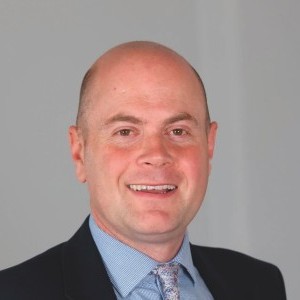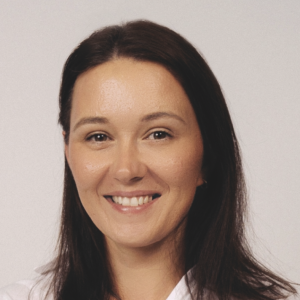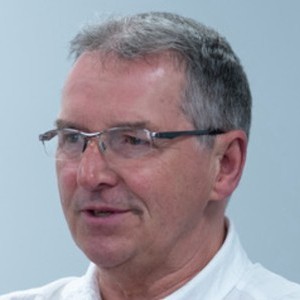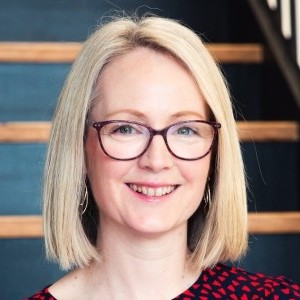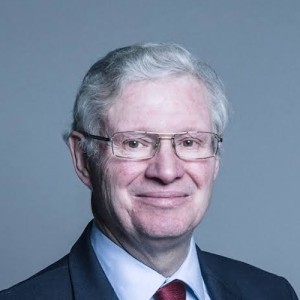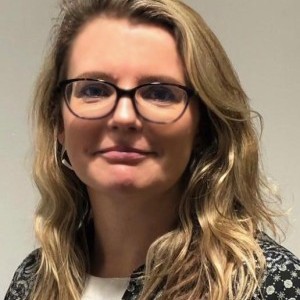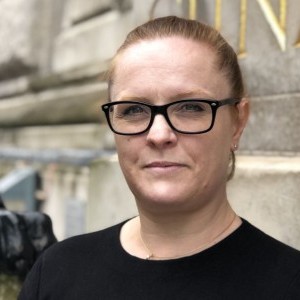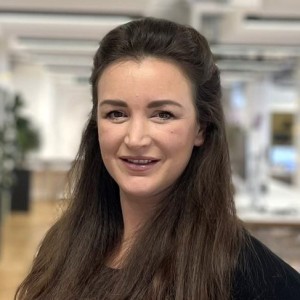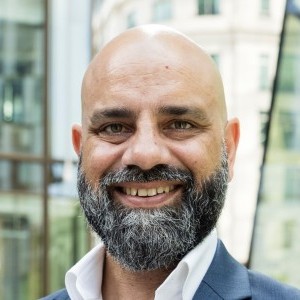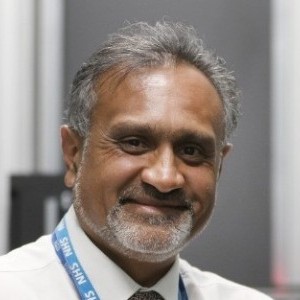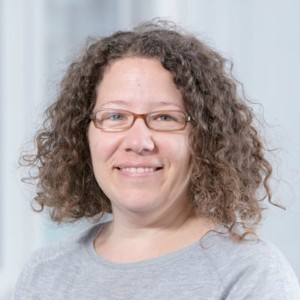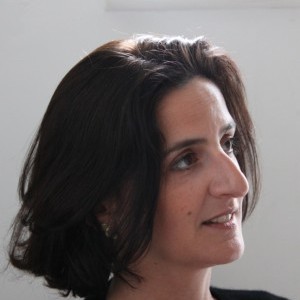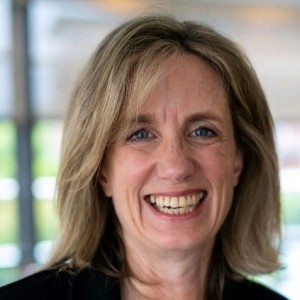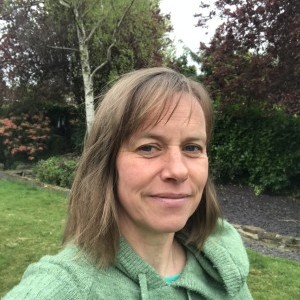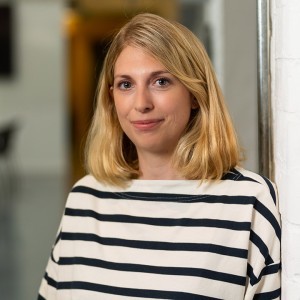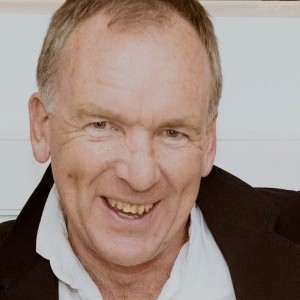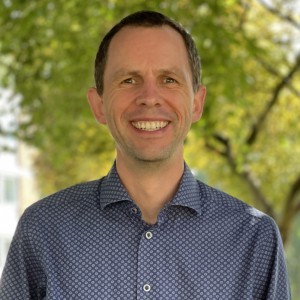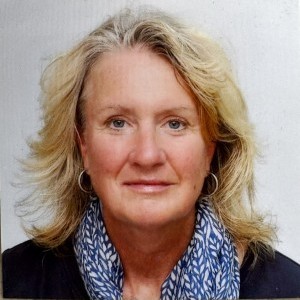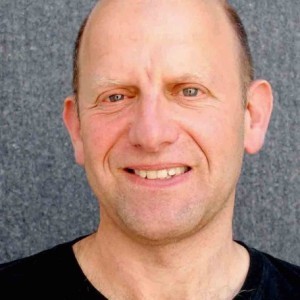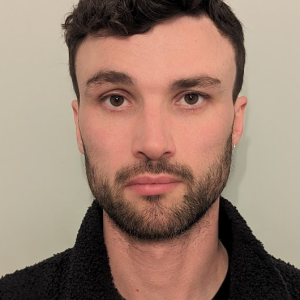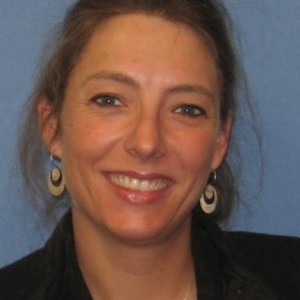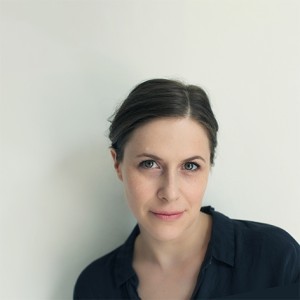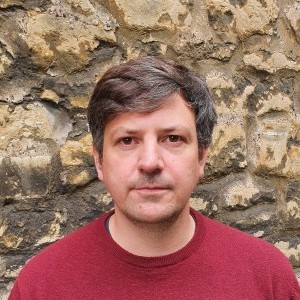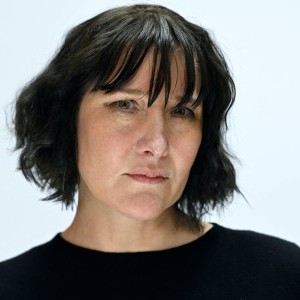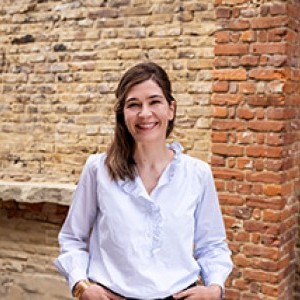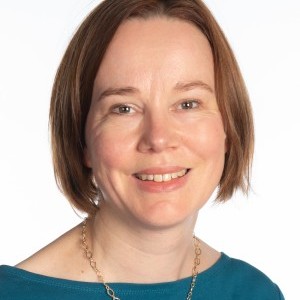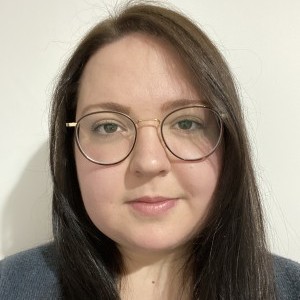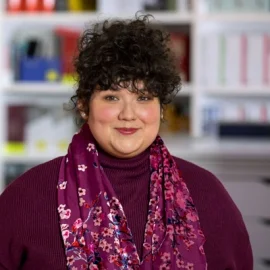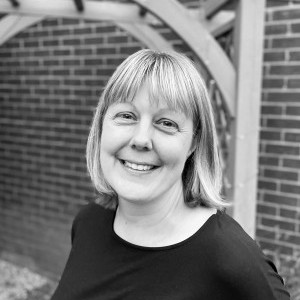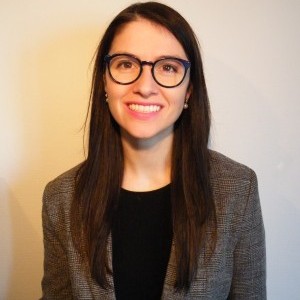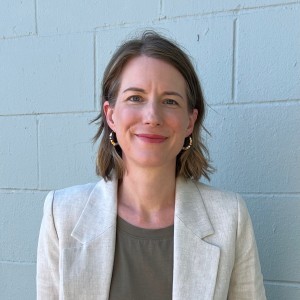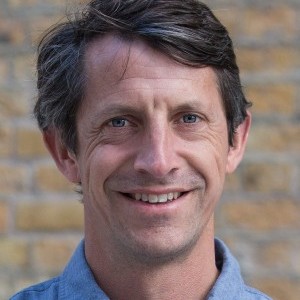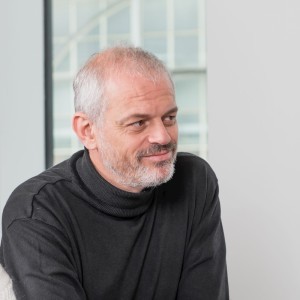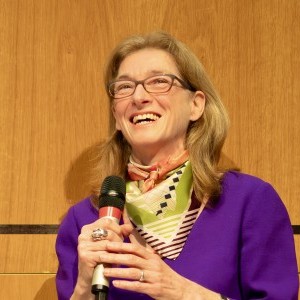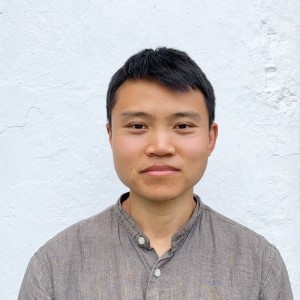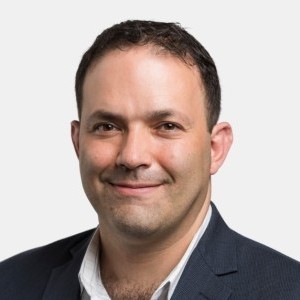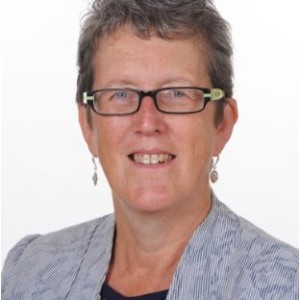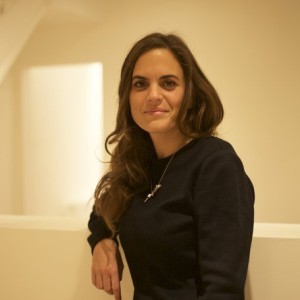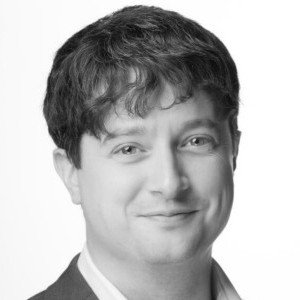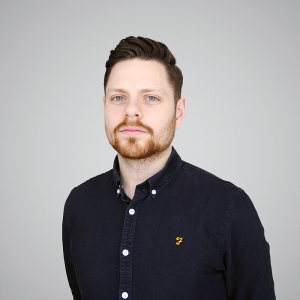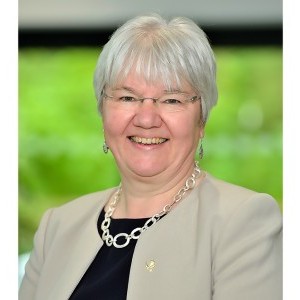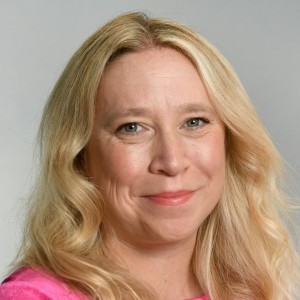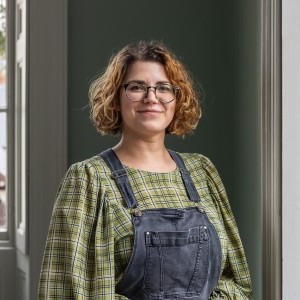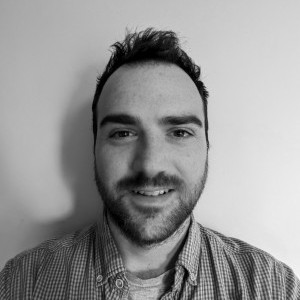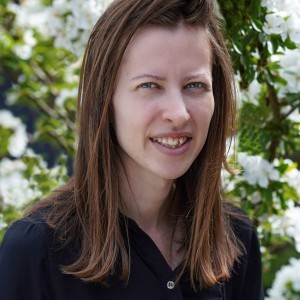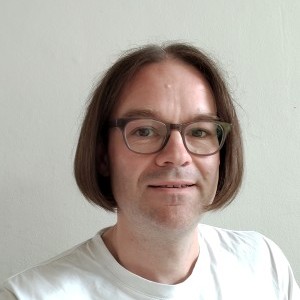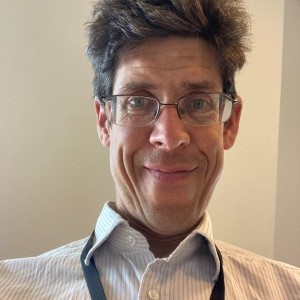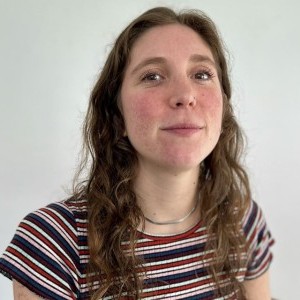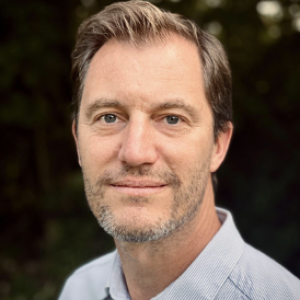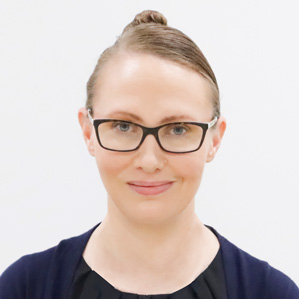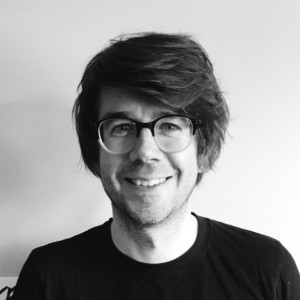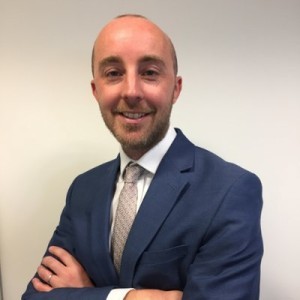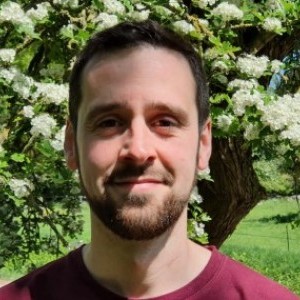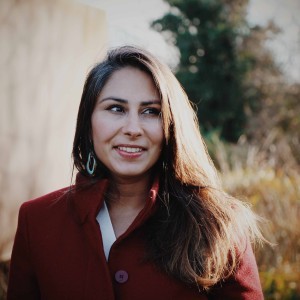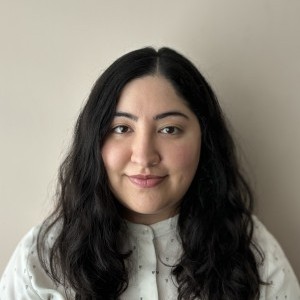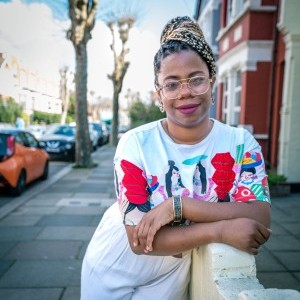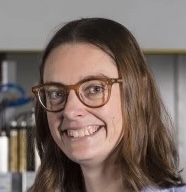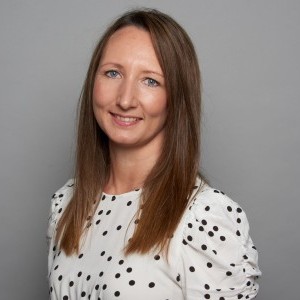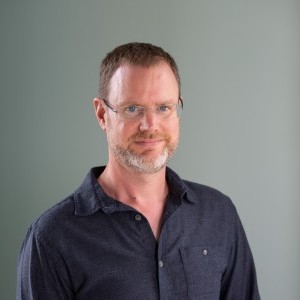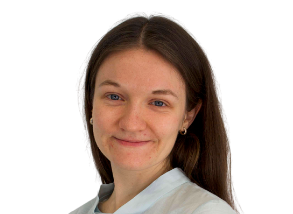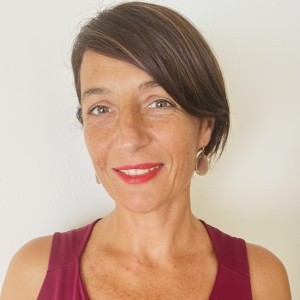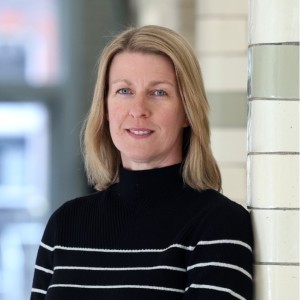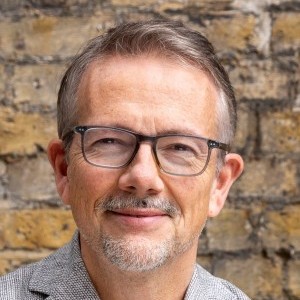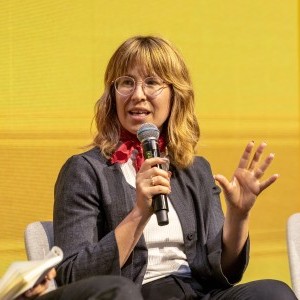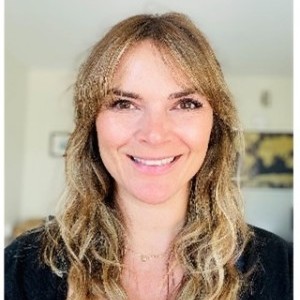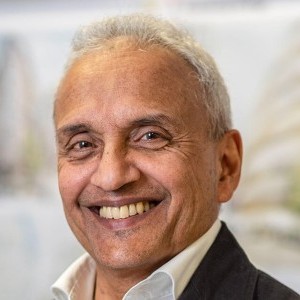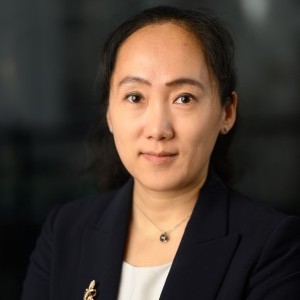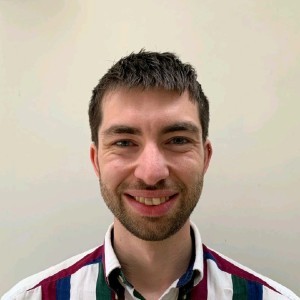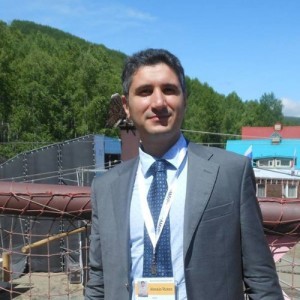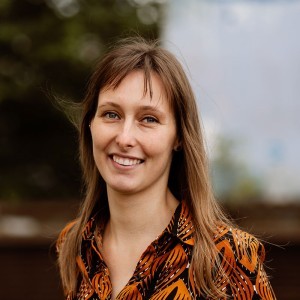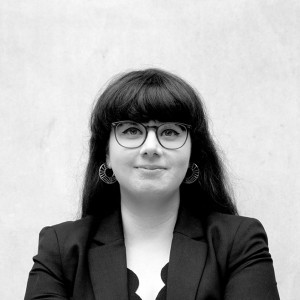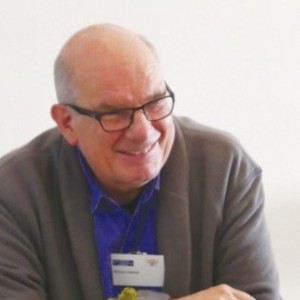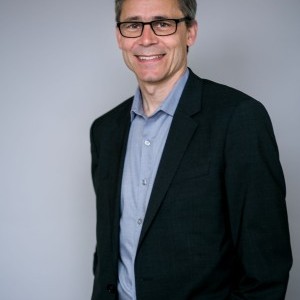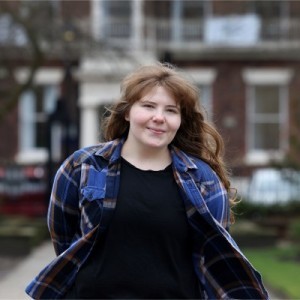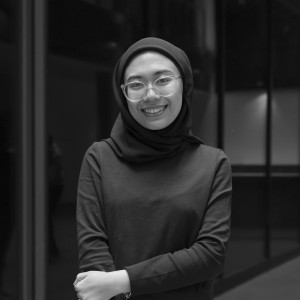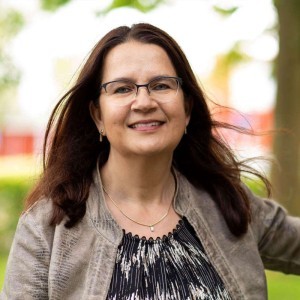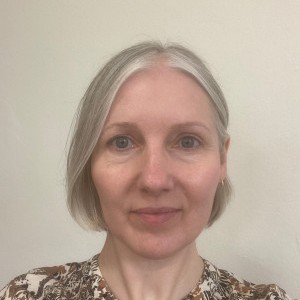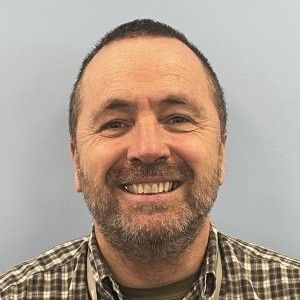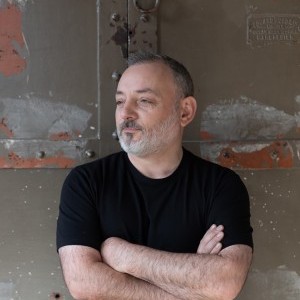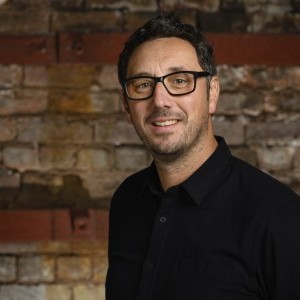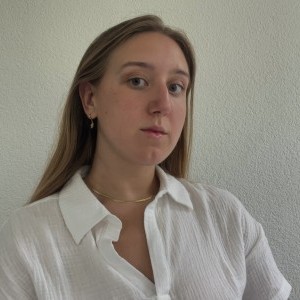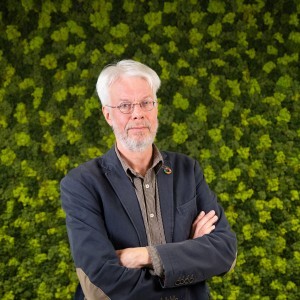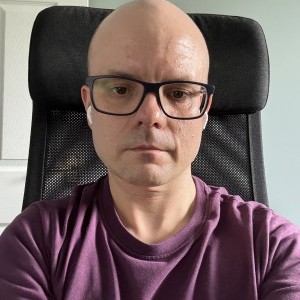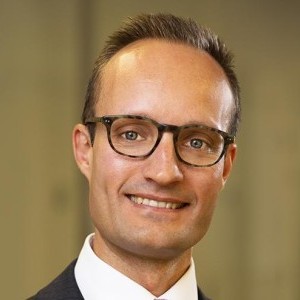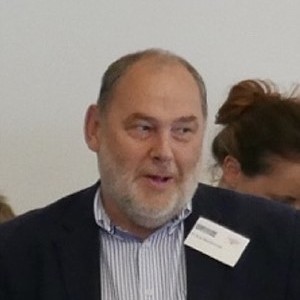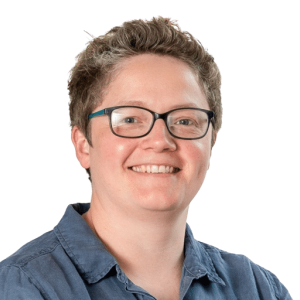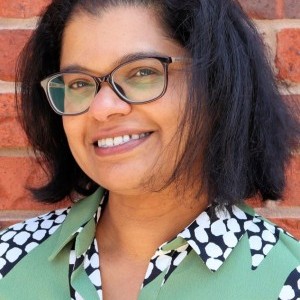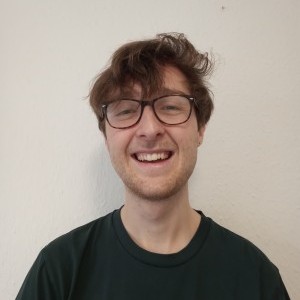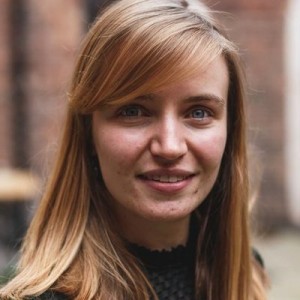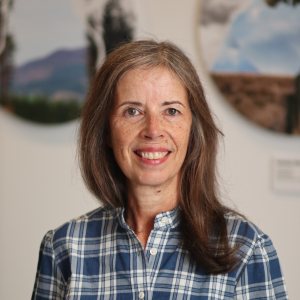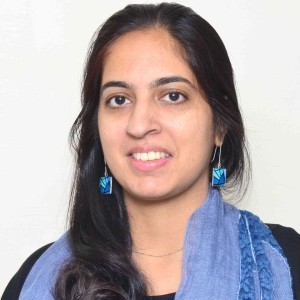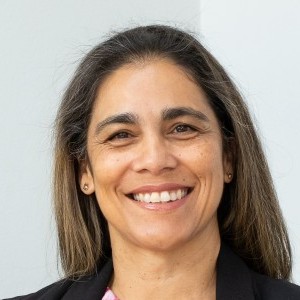
Speakers and presenters
Below you will find all details of our keynote speakers, session speakers, workshop presenters and Video+Poster presenters, click on each to learn about their backgrounds.
Keynotes

Councillor Liam Robinson
Leader of the Council, Liverpool City Council, UK
CLLR LIAM ROBINSON is Leader of Liverpool City Council and has been a Councillor since 2008, representing the Kensington & Fairfield ward. He became Leader in May 2023, having previously held the position of Cabinet Member for Finance, responsible for setting the Council’s budget.
Prior to that, Cllr Robinson was Chair of Merseytravel, and subsequently Portfolio Holder for Transport for the Liverpool City Region. During his time at Merseytravel and the Combined Authority, making public transport more affordable, particularly for young people, was a key focus.
He championed the introduction of reduced-price bus fares for young people up to their 19th birthday, which led to a 168% growth in journeys by young people. He also led the procurement of a new fleet of publicly owned trains for the Merseyrail network, including pioneering disability access features.
He previously worked in public transport, holding management positions in the rail, bus and coach industries, including responsibility for three of Britain’s largest railway stations: Liverpool Lime Street, London Liverpool Street and Sheffield.
His priority is to lead an administration that puts Liverpool first, and is committed to making the city greener, using sustainable growth to create jobs, supporting citizens through the cost-of-living crisis and embracing innovation to improve Council services.
Cllr Robinson is married with two young children and enjoys cycling and football in his free time.

Dagmara Wojciechowicz
Manager, Merseyside Polonia
My name is Dagmara Wojciechowicz and I live in the L8. November last year I took on the role of Merseyside Polonia’s manager. I am community champion manager focusing on working in partnership with local PCNs, hospital trusts and other health institutions advocating for Polish community.
Our partnerships are aimed at bringing down barriers in accessing healthcare and addressing health inequalities affecting our communities.
I am a public advisor for ARC NWC based at University of Liverpool on ‘Growing Up Children in Liverpool’ project, and also sit as committee on Health Equality Project Liverpool focusing on addressing low MMR imms uptake amongst children in Liverpool.
I have a degree in Business and PR but my focus during my studies was on Corporate Social Responsibility.
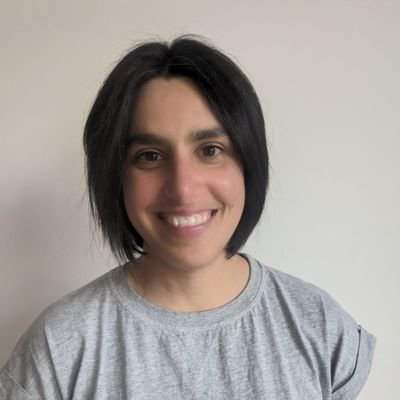
Dr Elspeth Anwar
Associate director of public health (wider determinants), Liverpool City Council, UK
I trained in the North West on the Public Health training scheme and I’m a medical doctor by background. I have also been an academic trainee and have published multiple peer reviewed papers.
I am passionate about improving health outcomes and reducing health inequalities through driving collective action to improve the conditions in which people are born, grow, live, work and age within Liverpool. I strongly believe in working with and empowering local communities to improve health outcomes.
My current lead areas include wider determinants, addictions (drugs, alcohol, tobacco, gambling) and research and development, including being the lead for the National Institute for Health and Care Research (NIHR) funded Health Determinants Research collaboration Liverpool.

Dr Muna Abdel Aziz
Director of public health and wellbeing for Salford, Salford City Council, UK
The Director of Public Health is responsible for delivering the public health function for the City Council and the city of Salford. This is a statutory role to work across partnerships and organisations for the collective efforts to tackle health inequalities, improve health, ensure people are protected from hazards to health, and to provide the public health advice to the NHS for the commissioning of services and the wider determinants of health.
Dr Muna Abdel Aziz joined Salford in January 2020 just before the COVID pandemic and has been leading efforts to respond to COVID and delivery of the locality plan. Previously, the Director of Public Health for Warrington, Muna has a medical degree and first started her career in public health in 1992 as an academic. She completed her MD in Sudan, PhD from Cambridge, and is professionally accredited as a specialist in public health in both countries. Muna worked as a Consultant in Public Health in Salford and Sheffield, then three years in the Sudan where she helped establish the National Public Health Institute in her role as Deputy Director. Muna’s work has covered diverse topics like malaria, maternal and child health, long-term conditions, health impact assessments of industry, mobile health and retention of the health workforce. Her interest in economy and health is central to her work on 'Health in Business', 'Health in Planning' and 'Co-production' with local communities for inclusive growth.

Gerry Proctor MBE
Chair, Engage Liverpool, UK
Gerry Proctor MBE was born and brought up in Liverpool went to Durham University and then worked in St Helens, Merseyside from 1977, predominantly with young people. That was followed by a period in South America for 6 years working with poor communities in Ecuador and Bolivia. Returning to Liverpool in 1991 to work in the mixed neighbourhoods of Dovecot and Knotty Ash for 12 years. Since then I have lived and worked in Liverpool's waterfront and city centre connecting with the resident communities whilst also leading a hospitality project in Croxteth, La Salle Hotel School, offering young people a pathway to careers in the visitor economy.

Jo Harrop
Director, PLACED, UK

Lord Andrew Mawson
Chair, 360 Degree Society, UK
Lord Andrew Mawson is a leading British social entrepreneur. He became Chairman of Well North Enterprises in 2019 following the success of the Well North programme, which Andrew led from 2015 – 2019. This was a Public Health England initiative which brought together the public and private sectors, and local communities to improve the health of people living in some of the most deprived parts of the North of England. Well North has now evolved into 360 Degree Society, a social business driving a national mission to put people at the heart of places and create health and wealth outcomes for communities across the UK. So far, the 360 Degree Society team has grown 15 Innovation Platforms across the country. Andrew is perhaps best known for founding the Bromley-by-Bow Centre in East London, the first working example of a fully integrated primary health care facility in the country. The centre today has over 287 staff, 97 businesses it has built with local people, and is responsible for 55,000 patients across Poplar. The centre is visited by over 2000 people a year from across the country and internationally. The 360 Degree Society has grown out of this 40-year track record and is now taking the principles originally developed at the Bromley by Bow Centre and working with partners to apply them in challenging communities across the country. Andrew, also founded Community Action Network (CAN) in 1997, a national programme for social entrepreneurs, Poplar Harca (one of the country's first housing companies) and Leaside Regeneration Ltd, which brought in over £100 million investment into the Lower Lea Valley. Andrew has now “graduated” from most of these ventures and each of them continues as a successful organisation. Through 360 Degree Society and Andrew Mawson Partnerships, Andrew works alongside a leading national thinkers, entrepreneurs and doers to grow and replicate his approach and successes including the national Science Summer School with Professor Brian Cox. In 2012, Andrew was made a Freeman of the City of London. He is also the author of the book, “The Social Entrepreneur: Making Communities Work.” Andrew’s work is also featured in Lord Crisp’s latest book (former CEO of the NHS) ‘Health is made at home; hospitals are for repair’. Andrew and his partners wrote the first paper proposing that the Olympic Games be brought to East London in 2012. He was involved in the Olympic project for 19 years from day one. He was a Director of the Olympic Park Legacy Company (OPLC) and then the London Legacy Development Corporation. Andrew Chaired the Regeneration and Community Partnerships Committee for 10 years on both boards, stepping down in 2018. Since the Games this development corporation has planned, developed, and managed the Olympic Park in East London and is creating a lasting legacy from the 2012 Games. The new £1.1billion East Bank campus development has brought to the Park the Victoria and Albert Museum, University College London, the BBC and Sadlers Wells, the London College of Fashion to name a few. This £1.2 bn project was Andrew and Paul Brickell’s original idea in 2006, which was an attempt to build an Innovation District in the heart of the east end of London based on the Bromley principles, bringing together business and social entrepreneurs. The project was backed by the then Mayor of London, Boris Johnson, when he was Chairman of the London Legacy Development Corporation. Under the AMP banner, Andrew co-founded One Church 100 Uses CIC and launched the Water City Group to create and implement a vision for East London revitalised by the opportunities of the 21st Century and the 2012 Olympic Games. Andrew was made a life Peer in 2007 in recognition of the social impact of his work, and he now sits as an independent Crossbench Peer in the House of Lords.

Lord Nigel Crisp
Independent crossbench member, House of Lords, UK
Lord Nigel Crisp is an independent crossbench member of the House of Lords where he co-chairs the All-Party Parliamentary Group on Global Health. He also co-chairs Nursing Now, the global campaign on nursing.
He was previously Chief Executive of the English NHS and Permanent Secretary of the UK Department of Health – the largest health organisation in the world with 1.3 million employees – where he led major reforms between 2000 and 2006.
Lord Crisp is a Senior Fellow at the Institute for Healthcare Improvement, an Honorary Professor at the London School of Hygiene and Tropical Medicine and a Foreign Associate of the US National Academy of Medicine. He was formerly a Distinguished Visiting Fellow at the Harvard School of Public Health and Regent’s Lecturer at Berkeley.
His publications on global health include Turning the world upside down – the search for global health in the 21st Century; Global Health Partnerships; One World Health – an overview of global health after Global Health Partnerships; and, edited with Francis Omaswa, African Health Leaders – making change and claiming the future. He described his time as Chief Executive of the NHS in 24 Hours to Save the NHS – the Chief Executive’s account of reform 2000 – 2006.
A Cambridge philosophy graduate, he worked in community development and industry before joining the NHS in 1986. He has worked in mental health as well as acute services and from 1993 to 1997 was Chief Executive of the Oxford Radcliffe Hospital NHS Trust, one of the UK’s leading academic medical centres.

Nicola Butterworth
Corporate director of neighbourhoods and housing, Liverpool City Council, UK

Nuala Gallagher
Corporate director of city development, Liverpool City Council, UK
An exceptional leader, Nuala has amassed more than two decades of experience in development and placemaking internationally and is also currently a board member of Limerick Twenty Thirty, a property development company.
Her previous roles include Head of Regeneration for the London Borough of Newham, Director for Economy of Place at Bristol City Council and Director of City Centre Development at Belfast City Council.
Nuala has also spent time working in New York, leading on sustainable urban development and teaching at Columbia University. She is a registered architect and a graduate of Columbia University with a Masters in Urban Design.
She will work closely with the Mayor of Liverpool Joanne Anderson, interim Chief Executive Theresa Grant and the Government Commissioners to continue the transformation of the City Development directorate.

Pete Gladwell
Group social impact and investment director, Legal & General, UK
After an erstwhile life as a Youth Worker, Pete joined Legal & General in 2007, launching a new generation of property funds focussed on liability matching and Defined Contributions pension schemes, and Legal & General’s joint venture with PGGM, which total over £5bn.
In 2015, Pete moved to lead Legal & General’s investments with the Public Sector - including the Cabinet Office, Combined & Local Authorities, NHS, Housing Associations and Universities - which now total over £5bn.
In his new role, Pete continues to lead on public sector investments, as part of a broader remit to identify and drive strategic initiatives through which Legal & General can use its resources to benefit society. This includes Legal & General’s partnership with Sir Michael Marmot to address health inequality.
Pete holds an MA from Brasenose College, Oxford in Computation, the IMC, and is a Fellow of the Royal Society of the Arts and Honorary Professor at UCL.
Pete is heavily involved in local community projects in Harlesden, west London and a Trustee of the Institute of Community Studies and the Young Foundation, which works to create a more equal and just society through social innovation.
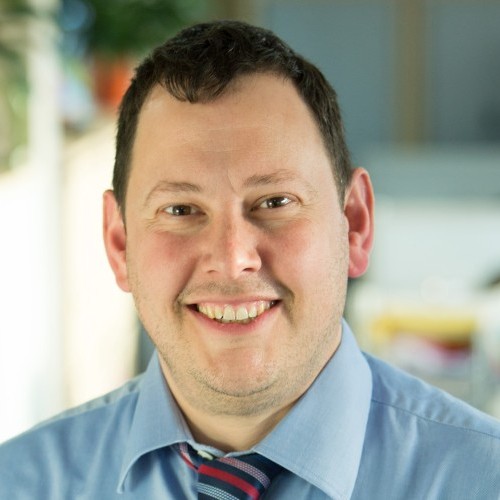
Professor Matthew Ashton
Director of public health, Liverpool City Council, UK
Prof Ashton was appointed director of public health for Liverpool City Council in April 2020 in a joint appointment with the University of Liverpool, where he is an honorary professor in the Department of Public Health and Policy.
He leads a team of 30 people in the local authority, covering a range of public health activities, including the commissioning of public health services, health protection, health improvement, healthcare public health, embedding health in all policies approaches, and addressing the wider determinants of health.
Matt led on the response to the Covid-19 pandemic for Liverpool, and his efforts have been recognised nationally through the award of the Faculty of Public Health’s presidential medal in 2021, and also the Chief Medical Officers' National Impact Award in 2022.
Matt is passionate about bringing together the best people and partnerships in the region to improve health and wellbeing and reduce inequalities in local communities.

Sam Campbell
Director of planning and building control, Liverpool City Council, UK
Mrs Campbell has worked at the city council since Autumn 1999 and has risen through the ranks of the Planning Department to hold various posts such as Principal Planning Officer, Deputy Team Leader of Urban Design and Heritage Team and City Centre Co-ordinator.
Her 19 year career at the council has led Samantha to take a lead planning role in a number of major regeneration schemes from Kings Dock to Liverpool Football Club’s stadium expansion to the development of the £2bn Knowledge Quarter and overseeing the growth of the Baltic Triangle.
The mother of two, who has a Masters in Environmental Planning from Liverpool John Moores University and Post Graduate Diploma in Urban Design at Salford University, has also played a key role in refreshing the strategy for Liverpool’s World Heritage site, liaising closely on projects such as Liverpool Waters and a new Cruise Terminal.
As Head of Planning her brief will be to also oversee the development of emerging growth zones in the city such as Ten Streets, the Fabric District, the new Beatles Quarter and the implementation of the Local Plan to build 35,000 new homes across the city over the next 15 years.
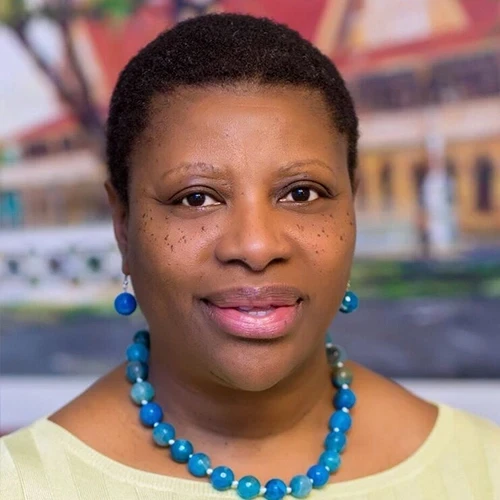
Yonette F. Thomas
Founder and president, UrbanHealth360, USA
Dr. Yonette Felicity Thomas is the founder and president of UrbanHealth360, an organization of multidisciplinary thinkers centered on a people-oriented, community-focused approach to urban health. Dr. Thomas is a globally acknowledged thought leader, urban health champion, and an advocate for valuing the health of women and girls as an economic imperative. A social epidemiologist/medical sociologist by training, she has served as the chief of Epidemiology at the National Institute on Drug Abuse in the National Institutes of Health, held academic positions at University of Miami Miller School of Medicine and Howard University, and as a vice president for research. She founded Borjoner International and Strategic Transitions to influence the progress, health, and wellbeing of individuals and communities across the world. As a founding board member of Women’s Economic Imperative (WEI), she leads the organization’s focus on the health of women and girls as an economic value. Her work as global advisor for Evidence for Sustainable Human Development Systems in Africa (EVIHDAF) and the Centre for Urban Health and Development within the Asian Institute of Poverty Alleviation (CUHD-AIPA) extends her focus on the global south and the realization of the Sustainable Development Goals in this last decade. She is the Associate Editor for Women and Girls for Cities & Health.
She is a founding board member of the International Society for Urban Health (ISUH) and recently led the organization into sustainability by serving as the inaugural executive director (as a board member) and has served as a science advisor for urban health to the New York Academy of Medicine. She is a founding board member and former vice president of the Interdisciplinary Association for Population Health Science (IAPHS) and served on the Steering Committee of the National Hispanic Science Network on Drug Abuse for more than a decade.
She served on the National Academy of Sciences Committee on Revisions to the Common Rule for the Protection of Human Subjects in Research in the Behavioral and Social Sciences. Her primary research and publications have focused on the social determinants of health, health disparities, the health of women and girls as an economic value, the social epidemiology of drug abuse and HIV/AIDS and the link with geography, including edited volumes: Geography and Drug Addiction, Crime, HIV, and Health: intersections of Criminal Justice and Public Health Concerns.
Session speakers and workshop presenters
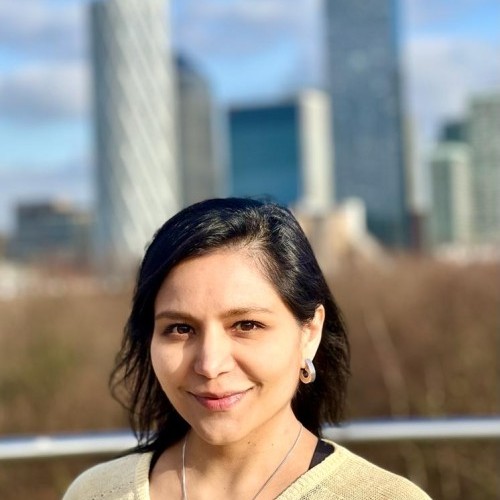
Adriana Ortegon-Sanchez
Research fellow, University College London, United Kingdom
Adriana is a researcher at the Centre for Transport Studies at UCL with over 10 years of experience investigating sustainable mobility and wellbeing and health in cities. Upon joining UCL, she participated in a large-scale interdisciplinary program defining visions for future liveable cities. Adriana has professional expertise in the planning and assessment of policies for active mobility, low-carbon transport and healthy places in Latin America and the Caribbean. She has collaborated closely with planning authorities and communities in the UK and internationally to build capacity and empower citizens with tools for transformative action. Her current research employs quantitative and qualitative methods to understand how the built environment of streets and neighbourhoods impacts children's health, subjective wellbeing, and travel behaviour. Her research also focuses on assessing policies such as the health impact assessment of new developments and understanding the broader benefits of healthy places interventions, such as fostering inclusive, sustainable cities and communities and achieving decarbonization goals.

Alex Nurse
Senior lecturer in urban planning, University of Liverpool, UK
Alex Nurse is a Senior Lecturer in Urban Planning in the Department of Geography and Planning, University of Liverpool.
His areas of academic research include the governance of cities and city-regions, and urban cycling policymaking. He has broad areas of interest in how local actors are able to use national policy structures to deliver for their own ambitions, and how local authorities can overcome barriers to policies which are seen as a normative good.
His recent book Rescaling Urban Governance: Planning, Localism and Institutional Change was published by Policy Press.

Alice Green
Associate principal, healthcare, Arcadis, United Kingdom
Alice Green is an Architect and Interior Designer and has specialised in health for over 15 years. Alice incorporates a holistic approach to design with a focus on service user wellbeing and finding innovative ways to create cohesive healthcare environments. Alice also sits on the board of Directors of Architects for Health, a non-profit organisation that advocates for best practice in healthcare design.
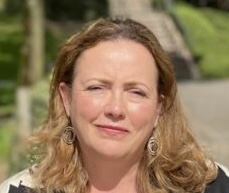
Allison McGuiness
Head of sustainability, Liverpool ONE, UK
Spearheading Liverpool ONE’s environmental, social and governance development is Allison McGuinness, Head of Sustainability, who brings a breadth of experience in implementing ESG-focused strategic behavioural change across the public and private sectors. Allison assists the whole Liverpool ONE team in leading Liverpool ONE’s journey to a more sustainable future.

Amanda Seims
Senior research fellow, Bradford Teaching Hospitals NHS Foundation Trust, United Kingdom
Amanda is a Senior Research Fellow at Born in Bradford, working within the Join Us: Move, Play (JU:MP) Sport England funded local delivery pilot focused on increasing children’s physical activity in Bradford through a whole-systems approach. Her JU:MP role includes qualitative research to understand influences on adolescent girls’ usage of parks in Bradford and the feasibility and acceptability of using a co-designed approach to developing green spaces. She is also delivering the Play in Urban Spaces for Health (PUSH) project to understand barriers and facilitators to designing play into urban spaces in Bradford and to implementing a school-led intervention to support children’s outdoor play. She has a background in quantitative and qualitative research, ranging across sports physiology, men’s health and health service evaluation, and has research interests in physical activity, active travel and greenspace.

Amit Oberoi
Executive chairman, Considerate Constructors Scheme, UK
Amit is a Global Risk Management Practitioner, with over 20 years hands-on cross industry experience in leadership roles in construction, technology, management consulting and national authorities. Amit currently works as Chief Executive at The Resilience Factor, a Mental Health Technology Company. He has previously worked for construction organisations including Lendlease and on large high profile infrastructure projects in locations in the UK, Middle East and Australia.

Anastasija Podkujko
Research assistant, The Life Rooms, Mersey Care NHS Foundation Trust, United Kingdom
Anastasija has been a Research Assistant at The Life Rooms (Mersey Care NHS Foundation Trust) since 2022. Anastasija's role is to complete evaluation projects within The Life Rooms and to emphasise the service user's voice in all the projects. Through her contributions and efforts, Anastasija ensures that the experiences and perspectives of those who access The Life Rooms services are central to developing more effective care.
Prior to joining The Life Rooms, Anastasija was an Honorary Research Assistant at University of Liverpool and contributed to a research project which explored the antenatal psychological experiences of women during the COVID-19 pandemic. This work provided valuable insights into the challenges and experiences of expectant mothers during a global crisis.
Over a 12-month period, Anastasija evaluated the interoperability of clinical and social prescribing systems, focusing on the referral processes and service user experiences. This comprehensive evaluation is critical for the development of The Life Rooms Social Model of Health and the provision of person-centred care.
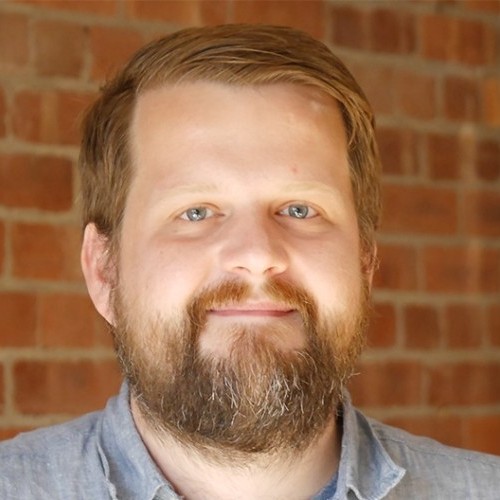
Andrew Beattie
Engagement and impact lead, Kindred, UK
Andrew has 20 years’ experience working with businesses across the social economy to tell their stories and increase their impact. He has worked nationally and internationally, helping connect people with ideas and build networks.
He is a founding team member of the Kindred team, working as communications and membership lead from 2020-2024. He’s also co-dean of micro-granting organisation Awesome Liverpool, which has given monthly £500 grants to support grassroots projects in Liverpool since 2013.
Andrew leads on our engagement with members, local and national stakeholders. He is responsible for our peer-to-peer support, shared learning and resources amongst members and with partner organisations, our directory of STOs, member events, and ensuring that we remain STO-led.
He is also responsible for coordinating our impact data collection and analysis.
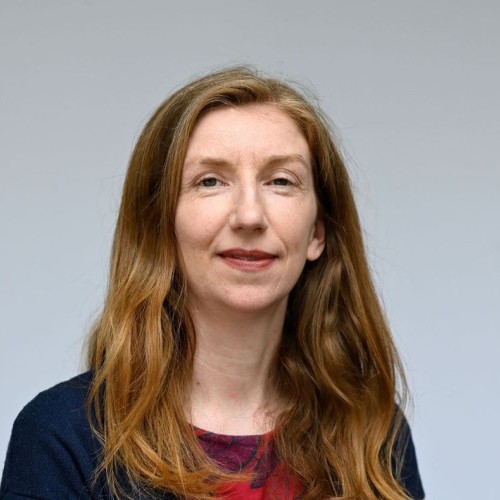
Anna Le Gouais
Research fellow, University of Bristol, United Kingdom
Anna is a Research Fellow at University of Bristol - Population Health Sciences, Bristol Medical School. She is seconded part-time to Bristol City Council as part of the TRUUD project, where she works with Regeneration, Planning Policy and Public Health teams.
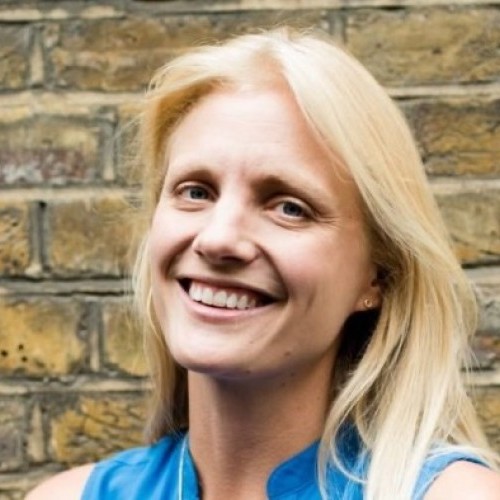
Antonia Orr
National and international partnerships manager, Impact on Urban Health, UK
Antonia joined in November 2021 and is part of the Research and Development team in Impact on Urban Health, working closely with other programmes as well as communications and policy colleagues.
In June 2023, she joined the Policy and Influencing team, where she continues to develop on our national and international partnership work.
Prior to joining Impact on Urban Health, Antonia was chief executive of Coalition for Efficiency, a small, collaborative charity that supports charity and community leaders to reflect on, measure and manage the impact of their organisation and initiatives. Antonia has close ties with Mexico, where she worked for Semillas, a women’s fund supporting gender justice initiatives.

Atul Patel
Superintendent pharmacist and prescriber, Mildcare, UK
I came to England as a British Indian refugee in 1973, from Uganda when I was 13 years old. I attended Balham Boys School, and in my spare time trained as an Electrical appliance engineer apprentice. By the age of 16 I was proficient in repairing electrical appliance such as fridges, fridge-freezers, vacuum cleaners and other small household appliances like irons and kettles etc. I used these skills to support my family and also fund my university degree of Pharmacy, which I completed in Leicester, graduating in 1983.
I worked as a Locum Pharmacist for two years and alongside this, in partnership with my brother, also ran a successful electrical repairs business called Electrocare in Tooting. I established my first company called Mildcare Limited in 1983 opening my first Pharmacy practice trading as Lincoln Pharmacy, and opened a second practice in Southwark in 1998. I served in the East London LPC and was part of the working group that introduced Flu Vaccination (which is now a nationally commissioned service), EHC, Minor Ailments and Methadone Supervision services in Tower Hamlets.
I have always had an interest in flying planes, and in my spare time I successfully qualified as a pilot in 1989. I enjoy participating and trying my hand at most sports as well, in particular being part of cricket clubs and 5-a-side football teams in the past. I still enjoy golf and, most recently, have joined a padel club.
During my 40 years of practicing as a Pharmacist I have always been involved with developing and addressing ways to meet our patients’ healthcare needs within our community; and have been aware of the need to always better our integrated approach to healthcare management. Since 2006 I have also been involved in “The St. Paul’s Way Transformation Project”, working closely with Lord Andrew Mawson and Partnerships, and was appointed director of a new social enterprise named St Paul’s Way CIC which was founded in March 2012 to kick start the Transformation in East London.
In recent years, the NHS has continually encouraged pharmacists to become part of an integrated primary care team. I have always dedicated time to my continuing professional development and I qualified as an independent prescriber in 2016. In 2023 I was awarded Independent Prescriber of the Year by Pharmacy Business. I am now part of the NHS Pathfinder site in Southwark, and with this opportunity furthering my professional development, I hope the journey will continue to help me to fulfil my company’s, as well as my personal, mission statement: “to serve my patients and community to the best of my ability, to ease the burden of their disease and improve the quality of their lives”.

Ayse Ozbil Torun
Associate professor, Northumbria University, United Kingdom
Dr. Ayşe Özbil Torun received her B.Sc. (2000) and M.Arch (2002) degrees in Architecture from Yıldız Technical University and Middle East Technical University respectively. She obtained her Ph.D. (2010) degree in Architecture from Georgia Institute of Technology with dissertation titled “Walking to the Station: The Effects of Street Connectivity on Walkability and Access to Transit”. During her Ph.D. studies she taught architectural design studio for 4 consecutive years at Georgia Institute of Technology College of Architecture. She currently teaches at the Department of Architecture and Built Environment, including Architectural History & Theory, Design studio, and PhD and MSc supervision.
Dr. Ozbil Torun`s research interests mainly lie in the fields of spatial modelling and urban form analysis using space syntax techniques. Her work is directed towards pedestrian-friendly neighbourhood and street design strategies enhancing active transportation in cities. Her recent studies have focused on walkability and obesity, transit-oriented planning, and design of sustainable cities. Dr. Özbil Torun has been a member of the editorial board of Urban Design International since 2012, and her work has been published nationally and internationally.
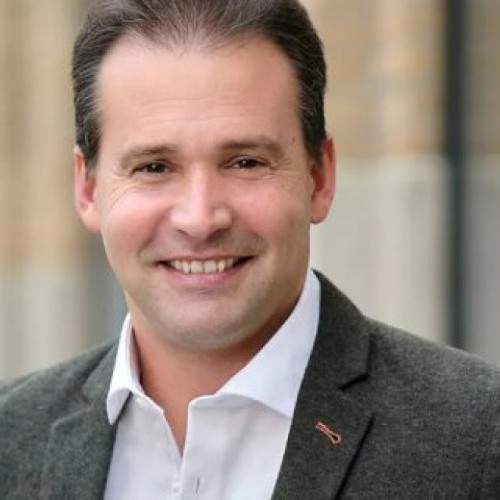
Blake Jackson AIA, LEED Fellow, WELL Faculty, CPHC
Director, sustainability, NORR, USA
Blake Jackson is an architect working at the nexus of sustainability, wellness, resiliency, and equity, who serves as the global Director, Sustainability for NORR. NORR is an 800-person integrated architecture, interiors, planning and engineering company, headquartered in Toronto, with 14 locations in the US, UK, UAE, and Canada. Blake has 23 years’ experience in the AEC industry, holding a Bachelor of Architecture from Kennesaw State University in Marietta, Georgia and a Master of Architecture in Sustainable Environmental Design from the Architectural Association Graduate School in London. Blake is a prolific author, speaker, and educator on topics affecting the built environment. He currently serves on the Advisory Board for the University of Massachusetts Dartmouth’s Interior Design Program, is on the AIA National 2030 Working Group, and he is a former Vice President, Advocacy for the Boston Society of Architects. Blake was recognized in 2015 by BD+C Magazine as a top “40 Under 40” AEC professional, he was named a LEED Fellow by the USGBC in 2021, and he is a 2024 recipient of the AIA Young Architect Award.
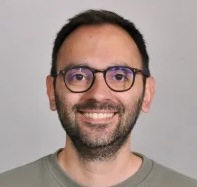
Caglar Koksal
Lecturer in Urban Planning, University of Manchester, United Kingdom
Caglar Koksal is a Lecturer in Urban Planning at the University of Manchester, with expertise in spatial planning, planning practice, housing and infrastructure planning, urban governance and policy, and health creation and inequalities. He has led and collaborated on numerous funded research projects at national and international levels, and he co-leads the Environment theme within the Healthier Futures Research Platform at the University. His research is grounded in a commitment to evidence-informed, practically engaged scholarship, using both quantitative methods (such as GIS and spatial analysis) and qualitative methods (including policy analysis and elite interviews). Dr Koksal’s broader research and consultancy work includes leadership on projects examining policy design and implementation, as well as collaborative work with local authorities, national government, think tanks, and private sector consultancies
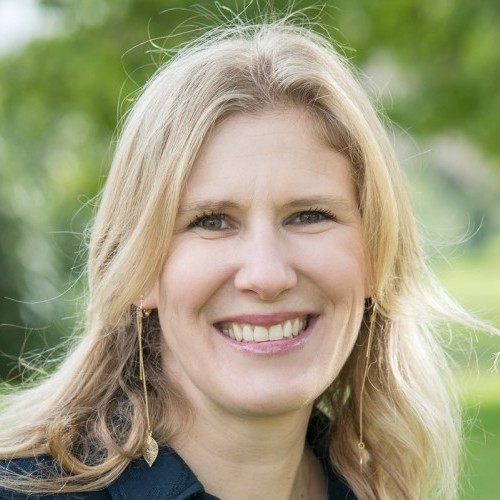
Carolyn Daher MPH
Co-ordinator, Urban Planning, Environment and Health Initiative, Barcelona Institute for Global Health, Spain
Carolyn Daher is a public health specialist with over 20 years of international experience connecting research, education and implementation to build healthier communities. Carolyn has a B.A. in Environmental Studies (Brown University), Master in Public Health (Johns Hopkins Bloomberg School) and a Master in Psychosocial Intervention (University of Barcelona). Her work centers on how to generate greater impact in policy and society using scientific evidence, and ensure evidence-based practices in the creation and implementation of projects to promote health, especially in urban contexts. She currently coordinates ISGlobal’s Urban Planning, Health and Environment Initiative.

Catherine Max
Associate, Future of London, United Kingdom
Catherine Max co-chairs the Future of London Health and Housing Impact Network. As an independent consultant, she helps organisations improve wellbeing and reduce health inequalities through strategy and action on social and environmental sustainability, place-making, urban design and related areas; and is a health and wellbeing expert member of the London Borough of Brent’s Quality Review Panel. With University College London Bartlett Faculty colleagues, Catherine conducts health and green space research and knowledge exchange. She led the development of Camden and Islington's Parks for Health Strategy; Camden and Islington NHS Foundation Trust's Green Plan; and planning and engagement strategies for Barking Riverside Healthy New Town. Catherine has been a trustee of a number of health, environmental and arts charities, most recently Sustrans. Previously, she was Lay Chair of NHS England’s Individual Funding Requests Panel (specialised commissioning) and a non-executive director of primary care trusts in East London.

Catherine Smith
CEO, Well North Enterprises, UK
Catherine has supported organisations from both public and private sectors in the design and delivery of transformational OD projects.
An individual who enjoys collaborating with like-minded people to make the world of work a great place for all. She supports and challenges leaders and their teams to build great cultures, purposeful missions and businesses that are sustainable. Through building working relationships that are based on trust, openness and vulnerability she enjoys long lasting and mutually beneficial friendships.
Following a successful corporate career culminating in a board position for a subsidiary UK PLC she has over 18 years’ experience in people and organisation development and has had the privilege of working with business across many market sectors including: NHS, LA, Police, Education, Manufacturing, Media, Pharmaceuticals, Finance, Insurance, Property and Energy.
She has experience in:
• Leadership Development
• Team Development
• Change Management
• Culture & Values
• Executive Coaching
• Stepping Out from the top team
• Career Development
She lives on the Wirral and when not at work can be found walking the Welsh hills with her dog; learning to row as part of a quad and enjoying the company of friends at a very long standing book club.

Cathy Knamiller
Senior research fellow: Participatory Research, Healthy Urban Places, Bradford Teaching Hospitals NHS Foundation Trust, United Kingdom
Cathy is a senior Research Fellow at Born in Bradford leading on participatory research in the Healthy Urban Places consortium. She has a very diverse work background which includes working as a community worker in Bradford for many years, being a volunteer coordinator and an English language teacher in various parts of the world. Her educational background includes a MSc in Sustainable Development and a PhD with the theoretical focus on environmental behaviour change.

Cathy Russell
Urban design director, Ryder Architecture, UK
Cathy is a recognised practitioner in urban design and an associate of the RTPI. She gained a master’s in urban design at Newcastle University. Cathy’s role at Ryder involves research, masterplanning, public realm, site and contextual analysis, stakeholder engagement and planning. She also leads historic research, heritage statements and impact assessments, working closely with conservation officers, Historic England and other consultees. Cathy is a Building with Nature approved assessor and Healthy Streets Foundation practitioner, and is passionate about creating healthy, sustainable places which enhance wellbeing. She contributes to Ryder’s research on placemaking for health and wellbeing, including presenting at the SALUS Healthy City Design Congress.

Celia García Albertos
Architect – expert in urban planning and housing, Healthy Cities, Spain
Architect and Urban Planner (Polytechnic University of Madrid, UPM). Expert in International Cooperation (UPM) with studies in urban resilience, green infrastructure, and human rights. Consultant for Innovation for Healthy Cities at Bax. Previously worked on architecture and urbanism projects in offices in Portugal, Spain, and England, and internationally with organisations such as UN-Habitat and Spanish Red Cross on sustainable urban development projects. Among them, she led housing and WASH projects in Haiti and collaborated with ICLEI in the European Urban LEDS program. As part of the Healthy Cities team, she contributes to various projects developing strategies for urban health and Health Impact Assessment.

Charles Kwaku-Odoi
Chief executive, Caribbean & African Health Network, UK
Charles Kwaku-Odoi DL MFPH is Chief Executive of the Caribbean & African Health Network (CAHN), a leading national Black health organisation at the forefront of reducing health
Inequalities and wider disparities. He is a Deputy Lieutenant of the County of Greater Manchester, an honorary member of the esteemed Faculty of Public Health (FPH), and the honorary Ecumenical Canon at Manchester Cathedral.
He has trustees and board roles including the NHS Race and Health Observatory; Manchester Foundation Trust Council of Governors; and Government SAGE Ethnicity Subgroup. Charles was named in the Health Service Journal 50 most influential Black Asian and Minority Ethnic people in health in the UK for two years running (2022 & 2023).
Charles is a Patient Public Voice Partner for NHS HIV Clinical Reference Group and NHS Quality Governance Group. He is a great advocate for equity and fairness across a range of important health and wellbeing issues for people of the Caribbean and African Diaspora. He is involved in work that influences the research, policy, and practice at regional and national level.
His special interest includes civic and democratic participation, blood & organ donation HIV, domestic violence, modern slavery and hate crime. Reading, walking, and football are his hobbies.
X (former Twitter): @charleskod
LinkedIn: Charles Kwaku-Odoi

Chris Brown
Founder, Climatise; Founding director, London Doughnut Economy Coalition CIC, UK
Chris Brown is a founder director of the London Doughnut Economy Coalition CIC, helping London to play its part in an economy that ‘delivers society’s needs within the planet’s limits.
He is also the founder of Climatise, using blended finance to deliver rewilding, retrofit and renewables. Through Climatise he is a director of fuel poverty and renewables community benefit society SE1 Solar and of retrofit business Future Fit Homes.
He was the founder of urban regeneration BCorps igloo Regeneration which co-founded ‘the world’s first responsible real estate fund’ (United Nations).
He also co-founded the Chrysalis Fund which lends to job creating workspace and green development projects in Liverpool City Region.
Until 2023 he chaired Creative Space and Dataloft (now Pricehubble) and helped management and shareholders execute successful exits.

Chris Cartwright
Research programme director: Healthy Urban Places, Bradford Teaching Hospitals NHS Foundation Trust, United Kingdom
Chris has a background in public health and is a Research Programme Director for UKRI population health improvement Healthy Urban Places consortium, and the Healthy Families theme of the NIHR Applied Research Collaboration Yorkshire and Humber. Chris is interested in closing the gap between research and practice with specific research interests including social and environmental influences on health, and the participation of the public and professionals in research. Prior to becoming involved public health and research Chris was an emergency planner for local authorities and the NHS.

Christopher Ali-Hempstead
Development coordination officer, London Borough of Tower Hamlets , United Kingdom
Christopher Ali-Hempstead has a BA in Town Planning and over 20 years’ experience of working for several local planning authorities within London, specialising in planning applications and planning enforcement.
He joined Tower Hamlets 5 years ago as a Planning Enforcement officer. He has been with Development Coordination since March 2021 working on projects including: the Health Impact Assessment (HIA) for Marsh Wall, documenting a green hoarding pilot case study, identifying land for a range of vehicle parking or material storage uses, defining a communication strategy and developing the council’s first Construction Awards programme.

Clare Delmar
Independent health and planning consultant, United Kingdom
I trained and practiced as an urban planner in the USA (MIT) before coming to the UK and working in public/private finance for many years, moving into the healthcare space as a funder of PFI hospitals in the NHS.
I currently help lead a healthcare business that provides innovative diagnostics and treatments to men with prostate disease. London is a centre of world-class innovation in imaging-led diagnostics and treatments for prostate cancer, and the Focal Therapy Clinic provides access to these innovations so that all men can achieve improved healthcare outcomes. I discuss this in regular blogs & podcasts.
My passions for healthcare and planning are at the heart of the “Listen to Locals” campaign, launched in response to the unprecedented scale of new building and development in London and the lack of meaningful engagement with local communities on the impact of this development on their health and wellbeing.
I devote each day to using my knowledge & experience in health, planning, digital & comms to improve healthcare and peoples' access to it.
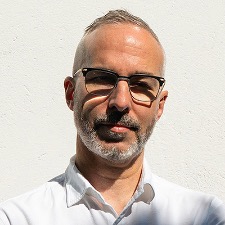
Dan Hill
Director, Melbourne School of Design, Australia
Dan Hill is the Director of Melbourne School of Design at the University of Melbourne and Visiting Professor at the UCL Institute for Innovation and Public Purpose. Dan has led strategic urban planning and design projects worldwide, occupying leadership roles in Arup, SITRA, BBC and Future Cities Catapult. He is the author of numerous publications including ‘Dark Matter & Trojan Horses’ (2012) and ‘Designing Missions’ (2022). He was formerly Director of Strategic Design at Vinnova, the Swedish government’s innovation agency.

Dan Phillips
Senior research fellow, Intelligent Mobility Design Centre, Royal College of Art, UK
Dan Phillips is a designer and engineer with 30 years’ experience in the development of innovative environments, products and services.
Dan studied at Imperial College and the University of Cambridge and is a senior research fellow and studio leader at the Intelligent Mobility Design Centre (IMDC) at the Royal College of Art and a design strategist at Design Science Ltd. He is a Fellow of the Royal Society of Arts and has been a member of a number of institutional advisory groups on cities, sustainability and the built environment.

Dan Shaughnessy
Metal sculptor, designer and lighting designer, DSIV Studio, USA
Dan Shaughnessy IV was born in Stavanger, Norway in 1988. After living in Sweden and England, Dan moved to Houston, Texas with his family where he was introduced to stick welding and various welding tools in the metal shop. As a child, he always had an attraction to form, structure and abstraction. Eventually, this fascination became a search for artistic forms and understanding the qualities metal bestows. He would later attend the school of The School of Art Institute of Chicago. Dan’s move to Chicago in 2008 opened new avenues for exploration in the metal sculpture world. In 2011, Dan began a long term professional liaison while working as an apprentice for Chicago sculptors Boyan Marinov, Mike Helbing, and Terry Karpowicz. It was with this experience that propelled his career as a professional sculptor.
Since beginning his career, Dan has worked on close to a dozen large scale figurative public pieces and over 140 public sculpture installations for a variety of mid-west sculptors. Dan continues to collaborate in the Chicago sculptor community and with fellow sculptors affiliated with Chicago Sculpture International. Dan currently lives between New York City and Chicago, creating public and privately commissioned large scale sculptures for clients. Going forward, Dan will be focusing on the balance of sculpture + technology and how to elevate public pieces to landmarks.

Daniel Black
Research director, TRUUD, UK
Daniel is a research director specialising in urban development, corporate decision-making, and bridging academic research to real world impact. He is currently based at the Bristol Medical School and co-leads the TRUUD £10m research consortium.
Daniel trained originally in economics, then urban design and planning, before specialising in impact assessment methods for large-scale development. He set up his own consultancy, Daniel Black + Associates | db+a, in 2012. Since then, he has led with academic partners a series of successful research bids covering urban planning; public health; corporate decision-making; climate change; food; energy; water; and waste.
Having spent over a decade in practice, learning about processes and detail downstream in a range of urban disciplines, including transport, urban design, building construction and community engagement, Daniel now leads research into decision-making that takes place upstream: governance, partnerships, corporate strategy, and risk management.

David Wilson
Transport strategy programme manager, London Borough of Lambeth, United Kingdom
I lead the transport strategy and programmes team, which are a key component of the councils climate change direcorate

Douglas Salcedo Anez
Co-founder, Nature Vibezzz, UK
Douglas Salcedo Anez is co-founder of Nature Vibezzz, a charity that organises forest school sessions as well as environmental and practical nature conservation sessions across London for young people and their families.
Nature Vibezzz used to increase internal capacity. Activities run through the forest school are popular and there is a need to be able to scale the level of delivery into other areas such as Burgess Park, Galleywall Nature Reserve, Streatham Common, and Knights Hill Wood. They scaled their internal capacity Activities run through the forest school are popular and there is a need to be able to scale the level of delivery into other areas such as Burgess Park, Galleywall Nature Reserve, Streatham Common, and Knights Hill Wood.

Dr Nathalie Roebbel
Unit head – urban health, World Health Organization, Switzerland
Nathalie Röbbel is the Lead for WHO’s work on Urban Health at the WHO, in the Department on Social Determinants of Health. Prior to this she was leading WHOs work on air pollution and housing in the Department for Environment, Climate Change and Health. One of her main areas of work was the development of WHO Housing and Health Guidelines and WHO’s efforts to address slum upgrading through housing policies and other social policies and interventions. Before joining WHO HQ, she worked as a technical officer at the WHO Regional Office for Europe, in Bonn and Copenhagen, where she was responsible for environmental health performance reviews and involved in several urban health related projects. Ms Röbbel holds a Ph.D. from the Rheinische-Friedrich-Wilhelms University in Bonn, Germany.

Dr Shira de Bourbon Parme
Urban wellbeing and innovation lead, Ramboll , United Kingdom
Shira is an urban development planner and social anthropologist focusing on delivering place-based spatial and social sustainability. As part of Ramboll’s Regenerative Cities Team, she leads on urban wellbeing strategies for liveable and resilient urban environments that sustain both human and planetary health. She develops and supports the implementation of strategies based on integrated and vulnerability-sensitive development, design for behaviour change, and local social value approaches. Shira holds a doctorate from the Future of Cities programme at the University of Oxford. She sits on the Advisory Board for the University of Birmingham’s Centre for Urban Wellbeing and delivers an annual talk for the University College London’s MSc Health in Urban Development and the University of Cambridge’s Future of Roads Programme.

Ed Kirton-Darling
Senior lecturer, Bristol Law School, UK
Dr Ed Kirton-Darling is a solicitor (non-practising) and Senior Lecturer in the University of Bristol Law School. His work in public/administrative law has a particular focus on housing, homelessness and urban development in a wider context of social welfare and human rights. As part of the TRUUD project, he has worked closely with the Office for Health Inequalities and Disparities and local authorities across England to encourage more effective use of Health Impact Assessment in urban development processes.

Eleanor Eaton
Research associate, University of Bath, United Kingdom
Eleanor’s research interests are in the economics of health and urban environments, and especially in metrics which can help decision making to improve the places where we live.
Her focus is on the societal costs of health, including direct and indirect costs such as healthcare and productivity costs, and non-market valuation techniques such as stated preference and contingent valuation. For TRUUD she is creating a model to quantify impacts of unhealthy urban development, Health Appraisal of Urban Systems (HAUS).

Elise Baudon
Masterplanning director , Prior + Partners, United Kingdom
Elise is a masterplanner and Managing Director at Prior + Partners. Attuned to the many competing interests at play in the development process, she has worked with a mix of public and private sector sector clients, established technology firms, and sustainability-focused property developers in the UK, USA, and France. A broad cultural perspective, and a conviction that well-designed built environments have the ability to transform our lives, underpin Elise’s work. Her portfolio spans large-scale regeneration schemes, neighbourhood planning studies, and open space and public realm design strategies, with current projects in London, Bristol and for Google in California.
A licensed member of the American Institute of Certified Planners, she studied Urban Planning at the Harvard Graduate School of Design.

Ellen Schwaller
Research associate, University of Liverpool, United Kingdom
Ellen is a Research Associate based in the Institute of Population Health at the University of Liverpool. She is interested in systems thinking, co-production, and urban health policy. Her role within the GroundsWell Consortium leverages local partnerships to identify opportunities to support development of and evaluate green and blue space interventions. Ellen is finishing her PhD which focuses on how local levers can impact access to food in Liverpool. She also has a rich background working at the intersection of urban planning and public health via Health Impact Assessments and other HiAP tools.

Emma Bird
Senior lecturer in Public Health, UWE Bristol, United Kingdom
Dr Emma Bird is a Senior Lecturer in Public Health at UWE Bristol. Emma is an active member of UWE Bristol's Centre for Public Health and Wellbeing, with broad research interests in health and place and evaluation in health and wellbeing.

Emma Dixon
Organisational lead - Place Population Health & Wellbeing Directorate, Public Health Scotland, UK
Emma has recently started a new role with Public Health Scotland as an Organisational Lead for Place (including the Place Standard Tool).
Prior to this she worked as Strategic Partnership Manager for the multiagency Carlisle Partnership, working closely with a range of key stakeholders across the Carlisle area and the newly formed Cumberland Council.
Emma worked across a variety of strands, to enable, encourage and facilitate joined up working and tackle complex ‘wicked issues’ within the area; whilst leading and developing local place-based change, working and relationships. In this role Emma has:
- Participated in and informed “Transformative Partnerships-exploring the potential for place-based collaboration linked to Sustainable Development Goals (SDGs)” research with two international universities, Lancaster City Council and the Lake District National Park Partnership;
- Enabled Carlisle’s journey to become one of the founding member cities of the Sustainable Food Cities movement across the United Kingdom and achieving a national bronze award in 2018;
- Developed a 4 year “Your Place” project to help communities to identify priorities in a bottom-up approach, pulling in partners from a range of sectors to facilitate (and piloting Scotland’s Place Standard tool). This has led to a North West wide pilot and evaluation project
- Held the role of joint World Health Organisation (WHO) Healthy City Coordinator, through which she has presented at many WHO events, and is also a member of the European WHO Healthy Cities Place, Health, Inequalities Well-being Group.
During 2021/22 Emma spent a secondment with Public Health England, and the newly formed Office of Health Improvement and Disparities, where she led the Wider Determinants work regionally and supported the development of national projects and policy.
Due to her experience, Emma has been recruited to The Health Foundations National Healthy Places External Reference Group.

Emma Halliday
Senior research fellow, Lancaster University, Joint-chief investigator, PHIRST LiLaC, United Kingdom
Dr Emma Halliday is a Senior Research Fellow based at Lancaster University and joint-Chief Investigator for PHIRST LiLaC. She spent four years working with NHS Health Scotland’s policy evaluation team and has worked closely with local authorities and community organisations to deliver evaluations of place-based interventions including regeneration, air quality, physical activity and community engagement initiatives. Her areas of expertise include: qualitative methods, public involvement and social determinants of health. Dr Emma Halliday - NIHR Public Health Interventions Research Studies Teams (PHIRST) e.halliday@lancaster.ac.uk

Ffion Carney
Senior data scientist, AtkinsRéalis, United Kingdom
Dr Ffion Carney is a Senior Data Scientist within the AtkinsRéalis Building Design Research & Innovation team. She specialises in urban analytics, geospatial analysis, and social science research. She holds a PhD in Geographic Information Science from the Consumer Data Research Centre, UCL, where she explored the use of big data to understand urban mobility patterns and transport disadvantage in vulnerable populations. Her current research focus is on the use of open data and geospatial analysis to address challenges and inequalities in urban environments. She leads a number of research initiatives and has extensive experience of applying GIS and geospatial analysis across large masterplanning projects to inform social and green infrastructure planning.

Fiona Scott
Co-Founder, Gort Scott Architects; London Mayors design advocate, Greater London Authority, UK
I am a founding director of Gort Scott, a London-based architecture and urban design practice.
Recent and current projects include leading a team to evolve a major piece of city in Old Oak Common for OPDC, a new sustainable office building in White City, retrofit for Woolwich old town hall and Woolwich Arsenal Gatehouse, and housing and urban projects across London. Gort Scott is a member of the the London Practice Forum following its Principles and Ethical Charter, and is on the GLA's Architecture + Urbanism Framework.
My directorial role is in the integration of vision and processes. This includes the wider architectural, societal, cultural, environmental and policy influences in the focus and trajectory of the practice, as well as accountability. I also oversee R+D and special projects.
In 2012 I was appointed to be a member of the Mayor's Design Advisory Group and since then have acted as one of the Mayor's Design Advocates, on the London Design Review Panel, and helping deliver the Mayor's strategies for Good Growth by Design.
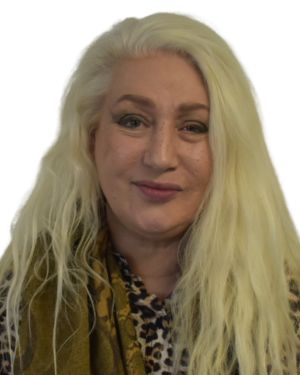
Frances Lobel
Project manager, Home Monitoring for Wellbeing, Repowering London, United Kingdom
Fran Lobel is a project manager at Repowering London, a not-for-profit community energy development organisation. She led on participant engagement for Home Monitoring for Wellbeing (HMW), a pilot study exploring practical, community-based approaches to facilitating low-income households to improve their indoor air quality and wellbeing at home.
Fran lives and works in the community where HMW and other Repowering London schemes are embedded; she has provided energy support to residents, and training for health and social care professionals on consumer energy rights and the health-impacts of energy crisis. She has particular expertise in rights and protections for prepayment meter households.

Francesqca Jimenez
Senior social scientist, HDR, United States
A Senior Social Scientist at HDR, Francesqca Jimenez investigates the ways environments impact human health, happiness, and well-being. Francesqca holds a Master of Science in Applied Research in Human-Environment Relations from Cornell University’s Department of Design and Environmental Analysis with a minor in Organizational Behavior, and a Bachelor of Arts in Psychology, English and Women’s Studies from the University of California-Los Angeles. Her primary research interests are environmental psychology, linking environments to healthy behaviors, and advancing social equity through design. In her work, she endeavors to understand how built, natural, and social environments affect behavior, cognition, emotion, identity, and representation.

Gabriel Ajala
Animator, Geroff Visuals, United Kingdom
With over 15 years of design experience Gabriel has a passion for content creation focused on social and educational content. Based in Hackney, East London, his diverse and socially aware environment has shaped his career and community involvement. Gabriel has always been an advocate for community issues and participated in various projects to promote a better way of life. He is part of the Leaders of Tomorrow scheme, mentoring young people, and serves as the creative director for Change in Youth, collaborating with schools and colleges in East London. In 2015, he founded Geroff Visuals to foster diversity and social inclusion in animation and commercial media, partnering with organizations like the NHS, Loughborough University, and The Africa Advocacy Agency. His animated videos, used in community research projects, have received acclaim, including a showcase at the Engage Live conference in Bristol.

Gemma Hyde
Projects and policy manager, TCPA, United Kingdom
Gemma Hyde is a Projects and Policy Manager for healthier place-making at the Town and Country Planning Association (TCPA). Gemma supports local authorities in all aspects of healthier place-making including how to embed health and wellbeing into development plans, the promotion and implementation of 20-minute neighbourhoods, child-friendly and intergenerational approaches, supporting specific initiatives such as school streets and providing training and workshops for officers, elected members and wider community groups. Prior to joining the TCPA, Gemma worked in various planning and public health roles with a number of local authorities and third sector organisations including Milton Keynes Council and the National Childbirth Trust.

Gemma Moore
Associate Professor (Teaching) and Senior research fellow in Evaluation, University College London, United Kingdom
Dr Gemma Moore is an Associate Professor (Teaching) and Senior Research Fellow, at the Institute for Environmental Design and Engineering at the Bartlett, UCL. Gemma is an interdisciplinary, applied social scientist, whose research and education focuses on developing approaches and methodologies for the collective production of knowledge in the field of sustainable, healthy urban environments. This involves practices of participation and engagement in research and education processes. Between 2020-2023 Gemma was part of a large collective research team on the ‘Complex Urban Systems for Sustainability and Health’ programme, which explored, and evaluated, how different forms of evidence are negotiated and applied in complex multi-stakeholder urban health initiatives. Gemma is a member of the Bartlett Faculty leadership team as Faculty Impact Lead. She also leads, with UCL colleagues and Compost London, an engaged learning programme (the Evaluation Exchange) which supports community organisations and teams to build research and evaluation capacity.
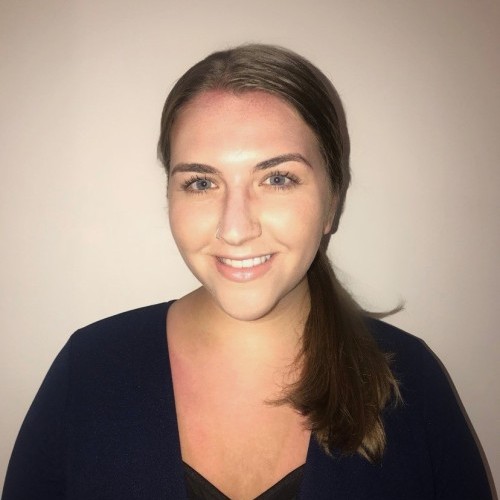
Georgina Byrne-Watts
Quality and research lead, The Life Rooms, Mersey Care NHS Foundation Trust, United Kingdom
Georgi Byrne-Watts, Quality and Research Lead for The Life Rooms (Mersey Care NHS Foundation Trust)
Georgi was appointed as Quality and Research Lead for The Life Rooms in 2021, to evaluate the impact of up-stream, preventative support on the health and wellbeing of individuals and communities.
Leading a team in quality improvement initiatives, and research and development, Georgi’s work is integral in demonstrating the impact and benefits of The Life Rooms’ Social Model of Health and supports innovative ways of improving health and wellbeing for socially deprived communities.
Prior to leading on Quality and Research at The Life Rooms, Georgi worked as an English Teacher and Lead Researcher in a secondary school and has achieved BA (Hons) in English Literature and Philosophy, MA in Management, and PGCE in Secondary English.
The Life Rooms and Access Elemental’s Mid Mersey Interoperability project demonstrates the benefits of harnessing digital innovation and developments by linking clinical and non-clinical systems to connect clinicians directly to a social model of health, improving the speed, effectiveness and quality of referrals to maximise care and Service User experience.
Follow Georgi on Twitter: @gjbwatts

Gerry Tierney
Associate principal; Director emeritus, Mobility Lab , Perkins and Will, United States

Gerry Tierney
Associate principal; Director emeritus, Mobility Lab , Perkins and Will, United States
Gerry Tierney, Associate Principal and Director Emeritus of Perkins&Will’s Mobility Lab, is studying the evolution of urban mobility and its impact on the public realm. A founder in 2009 of Mobility and the City’s REDCAR project, Gerry has collaborated with UC Berkeley’s TSRC on workshops addressing multiple aspects of evolving urban mobility. He has moderated at MIT’s 2015 Disrupting Mobility Summit and presented on the impacts of emerging mobility at ASLA’s and APA’s annual conferences, as well as at the University of Oregon’s SCI Urbanism Next Conferences. In 2020 he was a member of the University of California’s Institute of Transportation Studies expert committee for the Future of Public Transit and Shared Mobility Scenario Planning Workshop. He is also the author of chapters in “Shared Mobility and Automated Vehicles”, published in 2022 by IET, addressing the potential impacts of AV’s on the public realm. He continues his studies into the impact of evolving mobility on urban design, and placemaking, in addition to studying the potential impacts of a post-COVID hybrid work environment on suburbia.

Hannah E. Murdock
PhD candidate, Imperial College London, United Kingdom
Hannah E. Murdock is a PhD candidate in the Centre for Environmental Policy at Imperial College London and the Grantham Institute on Climate Change and the Environment, focusing on policy measures and behaviour change for decarbonising transport while maximising co-benefits. She also serves as co-Lead Author for the SLOCAT Transport and Climate Change Global Status Report and is a Research Partner with REN21 - the Renewable Energy Policy Network for the 21st Century.
In her more than 12 years working in the energy and transport sectors, she has held various research roles working within NGOs, international organisations, academia, and consulting. She has authored or co-authored over 30 publications, contributed as an advisor or reviewer to innumerable others, served on several international advisory boards, guest lectured in postgraduate programmes in Europe and the US, and has made frequent presentations and keynote addresses at conferences around the world.
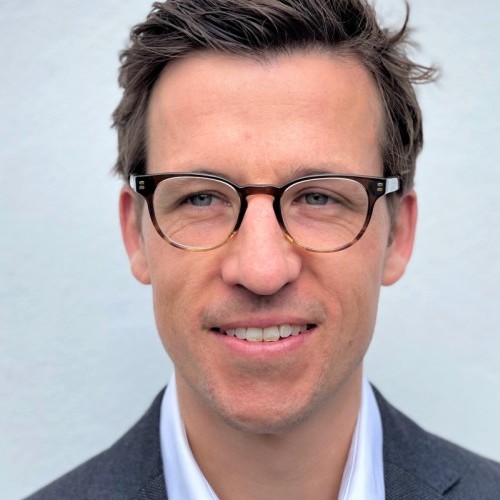
Harry Knibb
Development director, Oxford Properties; director, Academy of Urbanism, UK
A chartered town planner and developer, Harry specialises in pre-planning / strategic sustainability, wellbeing, and energy work.
His interests lie in social sustainability, wellbeing and loneliness. He has won awards for research exploring the linkages between pro-environmental behaviour and happiness. He believes there is an opportunity to employ robust social science methods to better understand the true impact of development. He is also a WELL AP.

Heeseo Rain Kwon
Lecturer in geographic data science, University of Liverpool, UK
Heeseo Rain Kwon is a Lecturer (Asst. Prof) in Geographic Data Science (Human Geography) at the University of Liverpool. She was a Postdoctoral Research Fellow at the UCL Bartlett School of Planning where she is currently an Honorary Lecturer. Her doctoral research at the University of Cambridge focused on using behavioural theories, agent-based modelling (ABM) and GIS-based spatial analysis for simulating urban change. Rain's research interests currently focus on the use of new forms of data along with theories, and behavioural modelling including ABM and human-environment interaction modelling.

Helen Pineo
Research Associate Professor, University of Washington, United States
Helen Pineo, PhD MRTPI is an urban planner and Research Associate Professor in the Department of Urban Design and Planning at the University of Washington. Her research focuses on how urban policy and development can support health and sustainability. She contributes to the evidence base about why and how to do healthy urbanism by using transdisciplinary approaches and amplifying the needs of under-represented communities and the planet. Her current and past research involves participatory, systems thinking and other methods to study: urban transformative change, housing and health, urban health metrics and evidence use in government. Her book, Healthy Urbanism (Palgrave Macmillan, 2022) provides a multi-scalar conceptualization of healthy urban environments, integrating equity, inclusion and sustainability. Helen lived and worked in London for 16 years, most recently as an Associate Professor at University College London, and previously as an urban planner working on projects in the UK and internationally.

Jack Newman
Research fellow, School for Policy Studies, University of Bristol, UK
Jack’s research considers how the reform of political institutions can lead to more effective public policy. In recent years, this has been focused on decentralisation and spatial policy in England, asking how the UK’s changing multi-level politics might enable more integrated, strategic, democratic, and preventative policymaking. At TRUUD, Jack focuses on how preventative health can be embedded in political discourse and realised though devolution and cross-government working.

Jack Skillen
Director of sustainability and place, Team London Bridge, United Kingdom
Jack Skillen has been integrating fields of place management, sustainability and active travel since completing his MSc in City, Space and Society in 2004. In his role as Director of Sustainability and Place at the London Bridge business improvement district, he set up the Bikes for Business programme in 2018, alongside other priorities of green infrastructure, the Low Line and working towards being a net zero business district. On Saturdays, he coaches under 15 football.
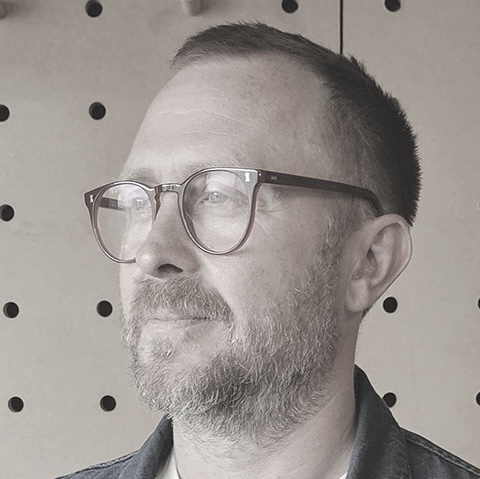
Jaime Bishop
Director, Fleet Architects; Chair, Architects for Health, UK
Jaime is a proven project designer, competition winner and studio leader. During his professional career he has been responsible for multiple projects with values ranging between 8 and 120 million pounds and was one of three associate directors responsible for the management of a 65 person firm under a Managing Director.
He is an experienced all-round designer with specialist skills in healthcare and has sat on the executive board of Architects for Health (AfH) since 2006. He has significant experience as the lead architect in major PFI schemes including the preparation of a reference project for a $2 billion teaching hospital in Adelaide, Australia. He has been a visiting tutor at various universities since 2002 including Nottingham, Cardiff and London Metropolitan. Since 2012 Jaime and Richard have been teaching third year degree level at London South Bank University and established their studio, The Transpontine Laboratory, based at the university in 2014.
Jaime was educated at The Royal College of Art, Bath University and the TU Delft Highrise Scholarship. He has been ARB registered and a member of RIBA since 2006. He is a recognised figure in the healthcare sector with connections throughout the industry. Jaime has detailed knowledge of traditional and PFI contracts, fee negotiation and project cost control. Jaime has sat on the board of City and Hackney NHS Clinical Commissioning Group and, social enterprise, East London Integrated Care. He has also served as an elected governor at the Homerton University NHS Foundation Trust.

James Shearman
Portfolio manager , Impact on Urban Health, United Kingdom
James is a Portfolio Manager at Impact on Urban Health, an independent urban health foundation committed to building health equity and making cities healthier places for everyone to live. An On Purpose Associate, he previously spent 10 years in the private sector building a sports agency and has spent time living in the Caribbean, London and Melbourne. He led on the development and implementation of Impact on Urban Health’s climate strategy and has mobilised funding and resource at the intersection of health, racial equity, and climate justice. He currently sits in the innovation team where his work focuses on the future of urban health, with a specific focus on community-led asset ownership as a mechanism for building wealth in underserved communities.

James Trafford
Project manager, Liverpool City Region Combined Authority, UK
Experienced project manager with highly transferrable project and cost-control skills across multiple industries. Over my career I have delivered profitable, timely and compliant projects to meet customer needs worldwide in defence, automotive, energy and currently; the public sector.

Jeremy Salmon
Principal director, UrbanPlaceNetwork, UK
Founding Principal of UrbanPlaceNetwork, international city focussed architect with over 30 years’ experience on major mixed-use projects around the world; passionate about activating destination, creating a sense of belonging through placeshaping and encouraging shared authorship.

Jeri Brittin PhD
Director of research, HDR, USA
Director of Social and Behavioral Sciences at HDR, Dr. Jeri Brittin leads a transdisciplinary team of social, behavioral, and health scientists whose work informs optimal strategies, planning, organizational and design decision-making. With her background in design, doctoral training in social and behavioral health, and experience leading multi-disciplinary teams, Jeri is passionate about developing strategies, systems and environments that promote positive and equitable outcomes. Her work focuses on wellness and behavioral outcomes related to environmental and social determinants in buildings and campuses, neighborhoods and cities, and organizations. Dr. Brittin maintains an active national and international research collaboration network, is a frequent speaker, has published numerous refereed articles, and serves on several national committees focused on design and health.

Jessica Allen
Deputy director, University College London, United Kingdom
Jessica Allen and Michael Marmot have worked together since 2011 to build the IHE and strengthen action on health equity and the social determinants across the UK and around the world. In her role as Deputy Director she has shaped the strategic direction of the Institute and overseen its work and development. She has worked closely with international organisations, national and local governments, businesses and the economic sector, third sector organisations and public health and health care systems. She has published widely on the social determinants of health and led much of the Institute’s work.
She leads the IHE’s work with global organisations including the UN, leading the current WHO Special Initiative, UNAIDS, and led the production of WHO regional health equity reports including the Eastern Mediterranean Region Commission on the Social Determinants of Health, Pan American Health Organization (PAHO) Commission on Equity and Health Inequalities in the Americas and the Review of Social Determinants of Health and the Health Divide in the WHO European Region. She was co-author of the 2010 Marmot Review Fair Society, Healthy Lives, the 2020 Marmot Review 10 Years On report and Build Back Fairer: The COVID-19 Marmot review. Jessica has also been involved in national reviews including most recently for Norway, Hong Kong and Taiwan and is also involved with Marmot Places in the UK. She has led many of the Institute’s evidence reviews on a wide range of social determinants of health and health inequality assessments.
She is a member of several advisory groups in England and internationally. Prior to her work at IHE she was head of Health and Social Care at IPPR, Research Fellow in Public Health at the Kings Fund, and worked at UNICEF and the London School of Economics. She has published and broadcast widely and holds a doctorate from the University of London.

Jide Johnson
Animator, Aniboxx, United Kingdom
Managing Director and Animation Producer Jide Johnson started Aniboxx studios out of the frustration of noticing a lack of underrepresented characters in Animated content. Working with brands such as The NHS and the Global Health Workplaces company, Aniboxx has always been helping brands in the health space communicate their messages, which is why it made perfect sense to produce the three animated stories we did for Impact On Urban Health. Aniboxx launched Little Miss Hug for the Mr Men brand with an advert, Written, produced and Directed by Jide. Aniboxx then began to work with Cartoon Network (Turner Broadcasting) on animation and content for their flagship shows across 5 main channels, for 2.5 years. Jide then realized he had a passion for telling his
own stories and has since gone on to tell a number of stories based on the underrepresented, for the big screen. Aniboxx worked on a documentary called “Spending Black”, featured on BBC iPlayer in Oct 2021, focused on the power of spending money with Black owned businesses. Since then, the Aniboxx team have won a place on the Sony Animation Pictures talent league to develop their first 2D animated series Family Britannia about a British born Nigerian Big Tech Genius. Following the series development, Jide collaborated with the Milkshake / Nickelodeon team to write, produce and voice narrate Aniboxx’ fīrst in house documentary “Where are The Smart Black Boys?” exploring the lack of intelligent black males featured in children’s content. Jide has recently produced a short movie about a Ghanaian Software Engineer: “UNCLE” for Channel 4’s Random Acts platform. This can now be viewed on 4OD. Aniboxx is currently producing four episodes of the American Animated series “The Tuttle Twins” (Season 3). Jide also launched the “Aniboxx Access internship scheme” for up and coming 2D
character animators, helping close the UK animation skills gap.

Jo Morrison
Co-founding director, Association of Collaborative Design, United Kingdom
Jo operates at the intersection of people, place, technology and data. Focusing on digital innovation and multidisciplinary collaboration, she aims to create more pleasurable, sustainable and person-centred environments through digital placemaking practices. Her sector experience includes health, education, culture, travel and the built environment.
Jo is Co-Founding Director of the Association of Collaborative Design, Director of Digital Innovation and Research at Calvium, a Fellow of the Royal Society of Arts and the Institute of Place Management, as well as an Expert on the UK government's High Streets Task Force.

João Branco
Global lead architect, OASE, UK
Born in Sao Paulo in 1974 and raised in Lisbon, where he moved in 1977, João Branco studied Architecture and Town Planning at Lisbon Technical University’s Faculty of Architecture (UTL), Portugal, and Escola Tècnica Superior d’Arquitectura del Vallés, Universitat Politècnica de Catalunya, Spain, as an Erasmus student. He graduated in 2000.
Working as a town planner and urban designer, he discovered the water features theme as a powerful urban design tool to enhance public spaces. So, from an early stage, he started working on integrating the water element into architecture, landscape design and public art projects.
During the last 20 years, he has conceived, developed and supported hundreds of multi-scale water feature projects worldwide, primarily for retail, hospitality, public plazas, roundabouts and theme parks. Also, having worked in international companies, such as GHESA and now OASE, has been crucial to building a solid worldwide experience, allowing him to speak at several professional events, attend multiple international exhibitions and constantly support global partners in the conception of innovative & memorable fountain experiences.
• Link to LinkedIn profile: https://www.linkedin.com/in/jcgbranco/
• Link to Professional Instagram: https://www.instagram.com/publicshape/

Johnny Lui
Spatial planning and health manager, London Borough of Tower Hamlets, United Kingdom
Johnny is an experienced architect, urban designer and planning professional. Before joining the Tower Hamlets Public Health team, he worked as an architect at Herzog & de Meuron in Switzerland and the UK on major international projects. He studied at the University of Cambridge, the Royal College of Art, and the University of Westminster.
In his current role, he is responsible for the integration of Health in Spatial Planning. Using a combination of Public Health evidence, planning expertise and urban design knowledge, Johnny improves health outcomes through the planning process at borough-level. He also contributes to this agenda at a London-wide level as part of the NHS HUDU Health Impact Assessment (HIA) Working Group, and nationally as part of the OHID Spatial Planning for Health workforce. He has been an invited speaker and presented his experience integrating Health in Spatial Planning on behalf of the Local Government Association, the TCPA, and Built Environment for the Future.

Jose Siri PhD, MPH
Epidemiologist, global, urban and planetary health specialist, USA
Over a career in research and policy, José Siri has developed and applied systems approaches to urban and planetary health, focusing on leveraging science for healthy development, devising simple systems tools to catalyse better decision-making, and improving understanding of complex challenges. His experience, which spans five continents, includes time at the International Institute for Applied Systems Analysis, the United Nations University International Institute for Global Health, and the Wellcome Trust, and extensive engagement with researchers, practitioners, and policymakers. He has published more than 30 peer-reviewed articles and book chapters, along with policy briefs and commentaries in publications ranging from the Wall Street Journal to the Global Sustainable Development Report. He currently consults for the World Bank and the World Health Organization and holds advisory roles with the Inter-American Institute for Global Change Research, Future Earth, CDP, and a variety of urban and planetary health research projects. His work has touched on urban studies, climate and health, sustainable development, systems thinking, transdisciplinarity, epidemiology, ecology, infectious disease, public health, and malaria control.

Joshua Artus
Director, Centric Lab, United Kingdom
An urban geographer focusing on the relationship between urbanisation and health outcomes at the community level. Josh helps run Centric Lab, a non-profit organisation prototyping ways to use health-based scientific evidence to support justice movements, surface and socialise non-western epistemologies and create language to articulate the injustices felt by many communities about our shared health. Using neuroscience and environmental data to identify how biological inequity contributes to poor health outcomes in neighbourhoods and peoples that have been racialised and marginalised, Centric Lab use this research to build open-access community tools, create new narratives and framings of health, and provide organisations with expertise and insights on health and place.

Kathy McLean
Chair, Nottingham and Nottinghamshire Integrated Care Board, UK
Dr Kathy McLean has decades of experience in clinical and system leadership in Derbyshire and nationally.
She was executive Medical Director at the former Derby Hospitals NHS Foundation Trust for over six years. Before that she was also a consultant physician at the trust from 1994 until 2009.
Dr McLean was the Medical Director at the former NHS Trust Development Authority for three years up to 2016 and prior to this she was the Clinical Transitions Director, helping to build the NHS Commissioning Board, which is now NHS England.
Her work has focused on improving quality by building clinical leadership and expertise across the system, supporting the most challenged organisations and leading change.
Dr McLean was chair of University Hospitals Derby and Burton until taking up her role with NHS Derby and Derbyshire Integrated Care Board. She was also a non-executive director at Barts Health and Barking Havering and Redbridge NHS Trusts.
Additionally she is chair of the NHS Nottingham and Nottinghamshire Integrated Care Board and Integrated Care Partnership and she is chair of the NHS Confederation’s Integrated Care System Network board.

Katie Gaudion
Senior research associate, Helen Hamlyn Centre for Design, Royal College of Art, UK
Katie is a designer whose work celebrates neuro-diversity and whose research explores how design can improve living environments for autistic adults.
Katie is a Design Researcher and has spent over 14 years working with neurodivergent people, who may have a unique way of thinking and experiencing the world. Her research largely investigates how design can improve the physical environment for autistic people. Katie develops tools that connect, communicate and engage with autistic people and their support network, to enable them to be active participants in the design research.
Katie is the first Research Associate to have completed a PhD by practice at the Helen Hamlyn Centre for Design. The PhD explored how autistic adults with additional learning difficulties experience their home environment. Katie has since put her ideas into practice in a wide variety of contexts, such as supported living accommodation, workplaces, sensory environments, educational institutions, health clinics, and hospitals. Her work has been published and presented internationally.
Katie’s research has broadened the Helen Hamlyn Centre for Design’s methods and practices to consider hidden disabilities and neurodiversity (such as autism and mental health) for the first time. Katie encourages designers to collaborate with neurodivergent people, whose unique ideas for innovation can be easily overlooked.

Kevin Fenning
Director, Evidence First, UK
I am an experienced economic development and strategy consultant with 15 years’ experience of supporting clients.
I regularly work with public and private sector organisations on: economic strategy and analysis, business case development and funding bids, economic impact assessment, and skills strategy and analytical work.
Typical clients include: local government (local authorities, combined authorities and pan-regional partnerships), central government departments and agencies (including MHCLG and Defra), universities, and major investors and developers. I help these organisations consider their approach to investing in and improving local places around the UK.
These are complex projects, involving a number of thematic areas, including: innovation, net zero, business support / sectoral development, exporting / trade, skills, infrastructure, housing, commercial property, energy and sustainability, and demographic change.
A consistent theme in all of these projects is the need to successfully engage with local leaders and senior officers – facilitating discussion between different organisations on the basis of clear, well-presented statistics and evidence, and helping groups of stakeholders to develop a common approach.

Kieran Ferdinand
Assistant director strategy and impact, Lambeth Council, UK

Kimon Krenz
Senior research associate, University College London, United Kingdom
Dr Kimon Krenz is a Senior Research Associate at the Bartlett School of Architecture and a member of the Space Syntax Laboratory at University College London (UCL), United Kingdom. He earned his PhD in Urban Space and Computation from UCL. His research utilises computational methods to quantify and analyse the built environment, focusing on how space influences human behaviour. He is particularly interested in using spatial data science to uncover social, economic, health, and spatial inequalities, applying this knowledge to inform evidence-based urban planning and policy-making. In addition to his academic work, Dr Krenz has experience as an architect, urban planner, and consultant for medium to large-scale urban development projects in Germany, which have received several architecture awards. @KimonKrenz

Liane Hartley
Director, Mend; Founder, Considerate Urbanism, Mend and Considerate Urbanism, United Kingdom
Liane is a “Considerate Urbanist” and is an urban planner by background and social entrepreneur in practice. She has been a consultant and writer on the broad area of urban sustainability for over twenty years. Her focus is on the social future of cities and how we live in and experience urban space. She writes about the emergence of the social city and “Considerate Urbanism” - moving us from car-based to care-based urbanism. Considerate urbanism is a movement, mindset and method for more considerate urban experiences futures, and behaviours to emerge for people planet.
Liane specialises in building positive social outcomes from the built environment through the businesses and organisations she has created (Mend and Considerate Urbanism) and the women’s leadership organisation she has founded (Urbanistas). She combines her personal interest in the social dynamics of cities and the future of cities, with her professional skills in strategy, policy, collaboration, and project delivery. Liane has a strong academic and professional background in the social impact of the built environment, and is regularly asked to speak, chair, write and participate, and to mentor others.

Lisa Dowling
Senior research fellow, Bradford Institute of Health Research, United Kingdom
Lisa is a Senior Research Fellow / Embedded Researcher working at the Bradford Institute of Health Research (BIHR) and the City of Bradford Metropolitan District Council (CBMDC). Her work aims to support the use of research and evaluation in local government decision-making. Lisa particularly focuses on supporting ‘real-time’ research and evaluation of place-based interventions to understand the impact on health and wellbeing.

Liz Towns-Andrew
Head of regional & business engagement, The University of Huddersfield, UK
Liz is a chemist by training and has extensive experience of working at the academic-industry interface. She was Director of Innovation for the Science & Technology Facilities Research Council before joining the University of Huddersfield and led the development of the national science and innovation campuses in Cheshire and Oxfordshire. She is 3M Professor of Innovation and Director of External Engagement for Huddersfield Business School, identifying opportunities for development of research activity and strategic partnerships. Until December 2020, she was Director of Research an Enterprise for the University and received a Queen’s Award for Enterprise Promotion for establishing the 3M Buckley Innovation Centre in 2013. In 2017, she was elected Chartered Companion of the Chartered Management Institute. She received an OBE in the 2020 New Years Honours list for services to Business, to Enterprise and to Public and Private Sector Collaboration and is the Regional and Business lead for the University’s major development – the National Health Innovation Campus. Liz is married to Steve and has a daughter Emma and outside work loves to spend her time gardening in her allotment, travelling and researching her family tree.

Lord Andrew Mawson
Chair, 360 Degree Society, UK
Lord Andrew Mawson is a leading British social entrepreneur. He became Chairman of Well North Enterprises in 2019 following the success of the Well North programme, which Andrew led from 2015 – 2019. This was a Public Health England initiative which brought together the public and private sectors, and local communities to improve the health of people living in some of the most deprived parts of the North of England. Well North has now evolved into 360 Degree Society, a social business driving a national mission to put people at the heart of places and create health and wealth outcomes for communities across the UK. So far, the 360 Degree Society team has grown 15 Innovation Platforms across the country. Andrew is perhaps best known for founding the Bromley-by-Bow Centre in East London, the first working example of a fully integrated primary health care facility in the country. The centre today has over 287 staff, 97 businesses it has built with local people, and is responsible for 55,000 patients across Poplar. The centre is visited by over 2000 people a year from across the country and internationally. The 360 Degree Society has grown out of this 40-year track record and is now taking the principles originally developed at the Bromley by Bow Centre and working with partners to apply them in challenging communities across the country. Andrew, also founded Community Action Network (CAN) in 1997, a national programme for social entrepreneurs, Poplar Harca (one of the country's first housing companies) and Leaside Regeneration Ltd, which brought in over £100 million investment into the Lower Lea Valley. Andrew has now “graduated” from most of these ventures and each of them continues as a successful organisation. Through 360 Degree Society and Andrew Mawson Partnerships, Andrew works alongside a leading national thinkers, entrepreneurs and doers to grow and replicate his approach and successes including the national Science Summer School with Professor Brian Cox. In 2012, Andrew was made a Freeman of the City of London. He is also the author of the book, “The Social Entrepreneur: Making Communities Work.” Andrew’s work is also featured in Lord Crisp’s latest book (former CEO of the NHS) ‘Health is made at home; hospitals are for repair’. Andrew and his partners wrote the first paper proposing that the Olympic Games be brought to East London in 2012. He was involved in the Olympic project for 19 years from day one. He was a Director of the Olympic Park Legacy Company (OPLC) and then the London Legacy Development Corporation. Andrew Chaired the Regeneration and Community Partnerships Committee for 10 years on both boards, stepping down in 2018. Since the Games this development corporation has planned, developed, and managed the Olympic Park in East London and is creating a lasting legacy from the 2012 Games. The new £1.1billion East Bank campus development has brought to the Park the Victoria and Albert Museum, University College London, the BBC and Sadlers Wells, the London College of Fashion to name a few. This £1.2 bn project was Andrew and Paul Brickell’s original idea in 2006, which was an attempt to build an Innovation District in the heart of the east end of London based on the Bromley principles, bringing together business and social entrepreneurs. The project was backed by the then Mayor of London, Boris Johnson, when he was Chairman of the London Legacy Development Corporation. Under the AMP banner, Andrew co-founded One Church 100 Uses CIC and launched the Water City Group to create and implement a vision for East London revitalised by the opportunities of the 21st Century and the 2012 Olympic Games. Andrew was made a life Peer in 2007 in recognition of the social impact of his work, and he now sits as an independent Crossbench Peer in the House of Lords.

Lourdes Madigasekera-Elliott
Public health strategic lead: Creating Healthy Places, Public Health East Sussex, United Kingdom
Lourdes is a public health professional who leads on creating healthy and sustainable places in East Sussex for East Sussex County Council. Lourdes has a background in international development, programme management, sustainability, political science, and sociology which includes a Masters in African Studies from Oxford University. In England, she co-chairs both the national health in all policies network and the southeast regional healthy places (built and natural environment) network. Lourdes and her team work to embed ‘Health in All Policies’ and lead on ‘Creating Healthy Places’ from a public health perspective. Using a ‘whole systems approach’, Lourdes works to influence decisions made in sectors other than ‘health’ that can positively or negatively affect the wider determinants of health and health inequalities. This includes a specialist focus on ‘planning for health/designing in health’ and planetary health. Lourdes provides expertise on health impact assessments and national strategic infrastructure projects.

Lucy Gardner
Chief Strategy and Partnerships Officer, Warrington and Halton Teaching Hospitals NHS FT, UK
Lucy joined the Trust in February 2016 from her role as a director at Ernst & Young’s healthcare advisory practice.
She has held a number of operational management positions within the NHS and subsequently, in her role at Earnest & Young, led largescale change programmes to deliver significant financial, quality and performance benefits within healthcare.
Since joining WHH, Lucy has led the development and delivery of the Trust’s strategy, as well as key strategic programmes including our new hospitals bid and securing funding to deliver a new health and wellbeing hub in Warrington town centre.
Lucy started her career 17 years ago as an NHS general management trainee, gaining a master’s degree in health and social care leadership and management. She is committed to developing others and working in partnership with other organisations and individuals to not only deliver outstanding healthcare, but also to enable wider regeneration.

Lydia Ramsden
Urban designer, Stride Treglown, United Kingdom
Lydia Ramsden is an Urban Designer at Stride Treglown, specialising in design for health. She has a background in architecture and planning with an MA in urban design. Her professional experience focuses primarily on residential, higher education and urban regeneration.
Lydia has a strong passion for public health and well-being within the built environment, notably that of restorative urbanism. Through in-depth research, as part of her master’s thesis, Lydia explored how the impact of the sensory landscape across the various urban morphological layers can have a positive effect on the restorative nature of place-making. She demonstrated how having a holistic approach to urban design and health can create a greater understanding for how designers can create people centric, restorative places. Following this research, Lydia is continuing to contribute towards better health and wellbeing opportunities within current design projects and is working towards gaining further knowledge on how this area of expertise can influence the built environment sector going forward.
She co-authored Stride Treglown publication 'Health and Wellbeing designed-in'.

Marc Cooper
Regeneration project manager, Bristol City Council, United Kingdom
Marc Cooper is a Regeneration Project Manager at Bristol City Council with previous regeneration experience at Royal Borough of Kingston upon Thames.

Maria Ikonomova
PhD candidate, University of Cambridge, United Kingdom
Maria is a PhD student in the Centre for Sustainable Development at the University of Cambridge. Prior to starting her PhD Maria completed a MRes degree at the EPSRC Centre for Doctoral Training in Future Infrastructure and Built Environment at the University of Cambridge and conducted research exploring how to retrofit NHS facilities to cope with extreme weather events. Maria completed her undergraduate studies at the Bartlett School of Sustainable Construction, and also has previous experience working in project management roles for a construction and property consultancy and an environmental charity.

Mark Drane
Director, Urban Habitats, United Kingdom
Mark is a researcher and practitioner with 20 years’ experience. He works across the fields of public health, urbanism, and architecture. His work addresses wider determinants of health, focused on promoting holistic wellbeing, and reducing health inequalities.
Mark has recently completed his doctoral research, Healthy Streetlife, undertaken during the Covid-19 pandemic observing the impact of the street environment on health. This research has been based at the WHO Collaborating Centre for Healthy Urban Environments, UWE Bristol.
As the founder and director of Urban Habitats Mark’s practice work encompasses population health across a spectrum of topics and methods. This includes working at a whole country scale with the WHO Collaborating Centre on Investment for Health and Wellbeing at Public Health Wales. He works at all urban scales including community co-design and addressing community agency as a determinant of health.
With a background in practice and industry Mark has been involved in the delivery of over £2 billion of capital investment in social infrastructure. Mark has experience with a broad range of stakeholders across the urban health ecosystem from many different systems and sectors.
Happiest whilst on a bicycle Mark is an optimistic gardener and lives in Cardiff, Wales with his family.

Mark Sandford
Senior research analyst, House of Commons, UK
Mark Sandford is a researcher specialising in local government, devolution, local government finance and territorial identity. He works as a senior research analyst in the House of Commons Library. He has published a number of reports, papers and journal articles on local government finance and English devolution. He has also been a research fellow at the Constitution Unit, University College London, and head of research at the Electoral Commission.

Martha Jordan
PhD candidate in Management, University of Bath, UK
Martha has joined TRUUD as a PhD student in Management where she will be focussing on developing an intervention that attempts to make explicit and disrupt the power structures within the current system of urban development decision-making. She began her studies in psychology, at the University of Manchester, before spending 2 years studying Environmental Psychology in the Netherlands at the University of Groningen. In the Netherlands, her work focussed on intersectionality within pro-environment community groups and looked at using psychological theory to understand the demographic makeup of these groups.

Matthew Morgan
Co-founder, director, Quality of Life Foundation, United Kingdom
Matthew Morgan is the Director and co-Founder of the Quality of Life Foundation. He is responsible for setting strategy with the Board of Trustees, overseeing the Foundation’s commercial services and delivering lasting impact with the Quality of Life team, itself focused on highlighting the impact of the built environment on people’s lived experience.
With over 20 years’ experience in writing and communications, Matthew has previously worked with architects, engineers and developers; in book and magazine publishing; and with charities and start-ups. He is a participant on a number of advisory boards and chairs a multi-stakeholder group that advises on community engagement as part of the UKRI-funded CCQOL (Community Consultation for Quality of Life) project.
A published author and mental health advocate, Matthew is particularly interested in how communities are formed and their effects on people’s physical, social and psychological wellbeing, an interest he developed while growing up in an intentional community in Kent.

Melinda Covey-Hansen
PhD student; Research assistant, University of Southern Queensland, Australia
Melinda Covey-Hansen is a seasoned Health Promotion Practitioner, bringing over 15 years of experience to the forefront of her work in shaping healthy and active communities. Specialising in impactful policies, plans, and programs within local government, Melinda has been both a leader of and contributor to numerous healthy and active living, transport and recreation initiatives. Melinda is currently completing a PhD with the University of Southern Queensland, focusing on active living, transport and recreation policy in local government. Melinda is also a research assistant with the University of Southern Queensland, contributing to various system-mapping, citizen science, health-supportive environments and community-led research projects aimed at creating healthy and active communities.

Michael Rigby
Data Project Manager, Impact on Urban Health, United Kingdom
Michael Rigby is the Data Partnerships Manager at Impact on Urban Health. Since October 2022, he has managed and created data partnerships to improve Impact on Urban Health's evidence and knowledge by utilising the latest data-driven approaches available.
Michael has worked within the not-for-profit sector as a 'data for good' expert for over 20 years and was previously ‘Head of Digital’ at the Football Foundation – the UKs largest sports charity – where he was responsible for a successful digital transformation to enable the delivery of a ten year National Football Facilities Strategy.

Michael Wood
Head of health economic partnerships, NHS Confederation, United Kingdom
Michael Wood is the Head of Health Economic Partnerships at the NHS Confederation.
Prior to this he developed and held the role of NHS local growth adviser from 2015, for some of this time working as deputy local growth consultant for the Higher Education Funding Council for England (HEFCE).
Before that, he was senior European policy manager at the NHS European Office for more than seven years. He has also worked for the Parliamentary and Health Service Ombudsman and for a Member of the European Parliament in Brussels.
As Head of Health Economic Partnerships, Michael advises NHS leaders nationally and locally on policy, strategy, partnerships and funding relating to the local economy, including in areas such as skills and workforce, estates, innovation, population health and finance.
Michael currently holds national advisory positions on the Civic University Network and the National Civic Impact Accelerator, as well as the Midlands Engine Health Board. He also advises NHS London on the development of its NHS Anchor Network.

Michele Young
Development coordination team leader , London Borough of Tower Hamlets, United Kingdom

Michele Young
Development coordination team leader , London Borough of Tower Hamlets, United Kingdom
Michèle Young has over 16 years’ private sector experience as a qualified Architect working on design and delivery of commercial office and education projects, in the UK and Europe. Between 2010-2020 she worked in the international humanitarian and development sector as Asia Regional Shelter and Construction Adviser for Save the Children International. Work focussed on the delivery of emergency shelter, housing (permanent) and social infrastructure (re)construction in a variety of contexts (Africa, the Middle East, Asia and the Pacific).
Since December 2020, she has been employed as a Development Coordination Manager in the Infrastructure Planning team at Tower Hamlets council. The role was created to establish whether the council has a role in proactively facilitating innovative and practical solutions to tackling the combined negative impacts of construction on residents and businesses at an area wide scale.

Mikel Subiza-Perez
Research fellow, University of the Basque Country UPV/EHU, Spain
Dr Mikel Subiza-Perez obtained a PhD in Environmental Psychology in the University of the Basque Country UPV/EHU (Spain) in 2019, where he works now as a postdoctoral researcher. He is also an honorary research fellow at the Bradford Institute for Health Research. He conducts research on environmental epidemiology and psychology, mostly aimed at understanding how urban environmental exposures shape behaviour and health. He is particularly intrigued about which factors, and through which processes, foster healthier and more sustainable lives and works with the vision of generating evidence to inspire public policies and interventions.

Milena Franco Silva
Research assistant, Washington University in St. Louis, United States
Milena Franco Silva is a research assistant in the People, Health, & Place Unit and a second-year PhD student in Public Health Sciences at the Brown School at Washington University in St. Louis. Originally from Curitiba, Brazil, Milena is an architect and urbanist who earned her Master’s degree in Urban Management from the Pontifical Catholic University of Parana (PUCPR). Throughout her academic journey, Milena has recognized the intrinsic relationship between urban design and public health. With a commitment to fostering equitable and healthier communities, Milena aims to contribute actively to these efforts in urban settings across Latin America and globally, leveraging a transdisciplinary approach.
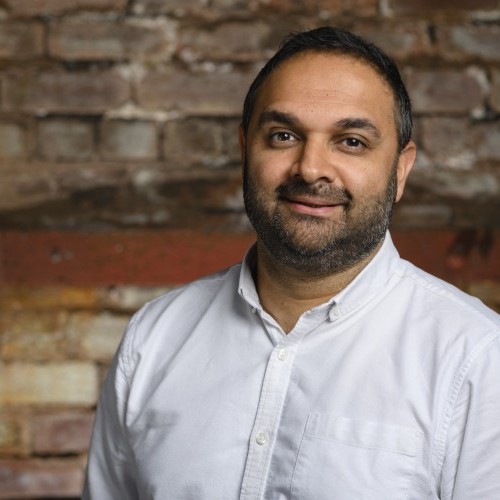
Mohammed Ul Haq
Associate, HLM Architects, United Kingdom
Mohammed has a wealth of knowledge across several sectors, including Healthcare, Residential, Education, Aviation and Masterplanning. His main focus at HLM is within the Healthcare sector, utilising his expertise to design and deliver superior clinical buildings, generate new business and to develop HLM’s Healthcare brand nationally and internationally. He is also responsible for developing HLM’s Elderly Care sector. Approaching the sector with a healthcare led design ethos combined with our expertise in residential placemaking to encourage ageing in place sooner and flexibility for occupants through the years.

Natalie Bamford
Research associate, University of Strathclyde, United Kingdom
Natalie Bamford is a research associate on the AHRC funded Design HOPES project at the University of Strathclyde. Her current research explores issues of communicating complicated information in relation to the home and health. Natalie's background is in the development and utilisation of creative or arts based methods, particularly working with concepts that traditionally defy representation.

Natalie Lartey
Founder and principle consultant, Wood & Water, UK
Wood & Water is a not-profit narrative change consultancy, based in Southwark that focuses on environmental and international issues that are driven by colonial, extractive, and oppressive systems supported by narratives.
The group prides itself on delivering pioneering engagement work to different community groups, charities, corporate groups and youth centres using the transformative power of narrative change to build unity and increase equity.
As grant recipient, they worked at further developing a pilot programme that was delivered to a group of 15 young people at the Salmon Youth Centre in Southwark. The programme is designed to deliver educational, and narrative change workshops to 50 Black and Brown young people from ages 15 to 25.

Natasha Reid
Founder, MATTER . SPACE . SOUL, United Kingdom
Natasha Reid is founder of MATTER SPACE SOUL, a specialist design consultancy and creative lab shaping places for health, wellbeing and social sustainability. Having trained and practiced in architecture, she has focused on the social, psychological and emotional impacts of places over the last decade and often speaks at conferences on forward-thinking approaches to pressing urban issues.
She is a “Healthy Places and Inclusive Design” expert for two London borough review panels, Fellow with the Center for Conscious Design and an Associate with the Quality of Life Foundation. She studied Architecture at Cambridge University and gained a Distinction for her Professional Diploma in Architecture at The Cass. She is an advocate for the power of design to create change that matters, recognised in international publications such as Wallpaper* and Elle Decoration, as a "Groundbreaker" and "Women to Watch".

Nazish Mahmood
Research fellow: Co-Production and Peer Research Network, Bradford Teaching Hospitals NHS Foundation Trust, United Kingdom
Nazish is a research fellow based within the Co-Production and Peer Research network (CoPPeR) at Born in Bradford. Her role involves supporting community organisations as equal partners in the research process, including the training of local peer researchers. Prior to this role she worked with various projects focused on improving the health and well-being of people living with mental health and long-term illnesses. She holds a BA (Hons) in Politics and Sociology from the University of Leeds.

Neil Orpwood
Associate director, HLM Architects, UK
Neil joined HLM in March 1994, becoming a fully qualified architect in the November of 1995. Working almost exclusively on health projects since then, he was appointed Associate Director in July 2011 in recognition of 15 years in the healthcare sector. He has led on all types of specialism, from inception to completion, across Acute, Primary Care and Mental Health, most notably for the Queen’s Centre for Oncology and Haematology, Hull (RIBA 2009 White Rose Gold Award for Architecture).
Passionate about the NHS and what it can achieve, a key driving factor in delivery of projects is the need to look at the bigger picture; reviewing every scheme holistically, focusing on the wider determinants of health, wellbeing and working environments, as well as the importance the impact the build environment has on healing in acute treatment care.

Nureen Glaves
Founder and CEO, Feed Me Good, UK
Founder and CEO of Feed Me Good. Nureen is a chef and Public Health Nutritionist, she founded the charity specialising in developing and delivering bespoke health and wellbeing Continuing Professional Development (CPD) accredited programmes for communities. The programmes promotes sustainability in the form of discouraging food waste, encouraging food budgeting and incorporating learning from nutrition studies to encourage a healthy diet.
As a grant recipient, Feed Me Good expanded the reach of people engaging with these sessions through the development of a train-the-trainer model. Through building resources and content for social media, followers will be able to learn from people within their own communities that they identify with

Obie Pearl
Black Farmers’ Market, UK
With more than 15 years of freelancing experience in social enterprise - systemic innovation, community grassroots activism, environmentalism, and graphic/service design, I have had the opportunity to be an entrepreneur and co-found a successful for-profit fitness business with a community mission. I love connecting with my roots and culture, savouring nourishing food and gardening, enjoying music, alternative fitness - training, performing, and teaching (hula hooping, roller skating), and exploring my creativity. My entire career and lifestyle revolve around building community and empowering others.
I am a passionate advocate for individuals with chronic illnesses, including #achalasia disease and other autoimmune conditions. I am proud to be an #movegb Ambassador, spreading the message of #moveforlife and promoting a positive mindset. I find joy in practicing mindfulness and learning from the wisdom of the Universe and our ancestors.

Olamide Raheem
Portfolio manager, Guy's and St Thomas' Foundation, United Kingdom
Olamide is a Portfolio Manager working in our Health effects of air pollution programme and Innovation function. She currently co-leads our work on Community wealth building, social investment for early stage diver-led suppliers and capacity-building for global majority-led businesses. She is also co-chair of the Foundation’s Climate Working Group.

Patrick Smith
Global fountain technology, OASE, UK
Patrick’s career has been dedicated to the enhancement of green and blue infrastructure for twenty years. It is a career that began in the horticultural trade, working with scientists to produce award winning growing media to promote thriving plants and led to working closely with Staffordshire University to show plants reduce particulate matter (PM10) in our atmosphere and noise pollution. This peer reviewed research led to several green living walls and roofs being set up in Victoria, London, removing the threat of localised flash flooding (2010, disaster, closing the Underground trains). Cleaner air, a nicer and quieter Victoria environment and an award presented by Mayor of London Boris Johnson in 2012. Patrick’s specialist role as aquatic consultant has enabled him to positively influence many public realms and urban regeneration in the UK with a combination of inclusive water attractions. An epic day out for all. Helping with global studies on Heat Stress and developing sustainable solutions for increased climate comfort. Being smart and helping mother nature to give us all better health, and comfort in our living environments.

Rachael Baker
Managing director, JJ Smith, UK
Rachael, a 4th generation family member, joined the business in 2013 and became Managing Director in 2022. With a scientific PhD and a number of business administration qualifications, Rachael is passionate about encouraging more diversity within engineering and construction. She is also a member of the Liverpool City Region Business and Enterprise Board, working with others to make the region the best place in the UK to live and work.

Rachel Turnbull
Programme lead and co-founder, Health Innovation North East and North Cumbria, United Kingdom
Rachel works in healthcare innovation leading regional projects in the North East of England. Originally qualified as a clinician with a Doctorate in Clinical Psychology Rachel has developed more than 15 years’ experience in project management and service improvement roles and more latterly completed a degree in urban planning and architecture. Her interests lie in the connections between wellbeing and urban design and how to support the creation of healthy, happy, fun places where people and communities can thrive.
Rachel is co-creator of the programme, Healthy Happy Places, which is focusing specifically on how we can create positive mental health and wellbeing through the built environment by sharing expertise and knowledge between the NHS, public health, regeneration and planning, design, architecture, the arts and citizens; and using creative participation to nudge and inspire the design of places and spaces. Exploring ways of putting ‘tactical urbanism’ into action in places with deep inequalities using a set of evidence based 'ingredients' to guide possibilities in place. This is currently being tested and applied in practice to projects in the North East.

Rebecca Crook
Research fellow, University of Liverpool, United Kingdom
Rebecca is a Research Fellow within the GroundsWell Consortium in the Department of Public Health, Policy & Systems. Her role in GroundsWell focuses on the development and evaluation of community-based urban green and blue space interventions, using co-design and qualitative approaches.

Rianna Raymond-Williams
Portfolio manager, Impact on Urban Health, United Kingdom
Rianna co-leads our work on trust in health systems and the role trust plays in creating health equity. As part of her work, she will collaborate with a range of stakeholders to understand the challenges and barriers Black and other minoritised communities experience when engaging with health systems. She intends to work with community members, academics, practitioners, and activists to devise solutions and initiatives with the hope of creating better health outcomes for Black communities in Lambeth and Southwark.

Rob Delius
Head of sustainability, Stride Treglown, United Kingdom
Rob is an architect and Head of Sustainability for Stride Treglown. Rob is passionate about placemaking, regenerative design, biodiversity and healthy cities. He is coordinating the practice's focus on zero carbon, nature abundant, people-centric, zero waste design.
He was one of the founders and organisers of the Therapeutic City festival in Bath. The 7 day event explored how to make places good for the mind, body and soul and hosted a wider range of speakers as well as collaborating on closing main thoroughfares in the city to traffic during the festival.
Rob was one of the architects behind the practice’s shortlisted ‘Re-imagining the Garden City’ entry, and been the winner of two RIBA competitions: ‘Tomorrow’s Garden City: A sustainable approach to living’ and ‘Imagine Bath’. He was architect for Great Bow Yard which was named ‘most energy efficient street in the UK’ when it was completed. He is behind several initiatives including 52 Big Ideas for Bristol, Waters of Bath, Bristol Colour Capital and more recently Sinking House, a climate art installation that received global media coverage, and a Funeral for Nature, a large-scale street procession highlighting biodiversity loss.

Roberto Villegas-Diaz
Data manager, University of Liverpool, United Kingdom
Roberto is the Data Manager of the GroundsWell Consortium, bringing a robust background in computer and data science to the role. With extensive expertise in crafting reproducible software pipelines, Roberto supports a wide range of analyses, ensuring accuracy and reliability in data handling. His keen interest in high-performance computing drives innovative solutions, enhancing the efficiency and scalability of data operations within the consortium.

Robin Dawson
Architect , NORR Architects & Engineers, Canada
Robin Dawson has been involved in a wide variety of projects in the government, residential, commercial, cultural and hospitality sectors. Robin is highly skilled in architectural design and experienced in all phases of project delivery. She specializes in the design construction documentation process for complex projects in cost-conscious environments. Robin is process oriented and seeks to resolve problems through collaboration and engagement to ensure overarching goals and objectives can be obtained. Robin also performs a Project Manager role, collaboratively managing large teams of peers, consultants, stakeholders, and agencies for on-time delivery. Robin provides guidance and advice to develop feasibility assessments and direct Clients in better understanding the direction of the project. Robin has been working on projects within the Parliamentary Precinct for the past few years, specifically providing guidance on accessibility within the Precinct.
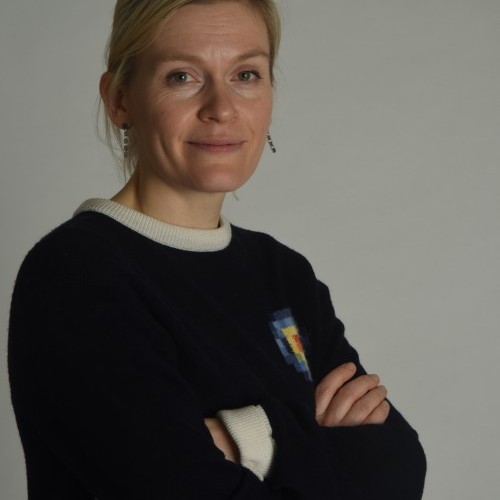
Rosie McEachan
Born in Bradford director, Bradford Institute of Health Research, United Kingdom
Rosie McEachan is the Director of Born in Bradford and a proud (Scottish) Bradfordian. She is an experienced applied health researcher with particular interests in cohort studies, development and evaluation of complex interventions, environmental determinants of health, green space, air quality, and co-production. Rosie holds a visiting professor position at University College London and an honorary chair position at the University of Bradford.

Ruoyu Wang
Research fellow, University of Essex, United Kingdom
Dr Ruoyu Wang now is a Research Fellow in Institute of Public Health and Wellbeing, University of Essex. He used to be a Research Fellow in Centre for Public Health, Queen's University Belfast. He obtained a Ph.D in School of Geosciences from the University of Edinburgh in 2021. Ruoyu Wang mainly focuses on health geography research, pays special attention to the impact of urban built environment on various health indicators, and has in-depth research on the impact of urban green space on mental health.

Ruth Gow
Urban planner , Healthy Cities / Bax , Spain
Team: The multidisciplinary team behind the HCG includes co-founder and award-winning urban health architect Marta Rofin Serrà, co-founder Sebastiaan van Herk, architects Ruth Gow and Celia García, researcher Amber De La Haye, and urban greening expert Sofia Aivalioti.

Samuel Bradley
Senior environmental consultant, Arup, United Kingdom
Sam is an air quality and odour technical expert. Sam uses his knowledge to deliver robust technical assessments of complex developments, whilst providing expert advice and guidance to the client on their design and mitigation strategies. Sam is experienced in monitoring, modelling and advising on mitigation and policy. He is a technical expert in air quality and odour impact assessments, dispersion modelling and emission calculations. Sam is experienced in undertaking technical work for local planning matters, Development Consent Orders, Environmental Permitting and research.

Sara Candiracci
Associate director, Global leader, Social Value & Equity, Arup, Italy
Sara is an Associate Director in Arup's Cities, Planning and Design team in Milan, and the Global Leader for Social Value and Equity. She also leads Arup's work on gender-responsive urban planning, and on child-friendly and playful cities. Sara believes in the power of collaborative partnerships and community engagement to achieve step-change outcomes in global issues.
With more than two decades of experience as an urban planner, researcher, and international development expert, Sara has been at the forefront of designing and leading projects and programs focused on creating more equitable, inclusive, healthy and resilient cities. She also has the ability and passion to use applied research to shape innovative ideas and approaches, and transform them into strategies and practices that enable innovation and change. Some examples are the Proximity of Care Design Guide, the Playful Cities Toolkit, the Nature Based Play Report, and the Cities Alive Publication Designing Cities that work for Women.
Sara holds a PhD in urban planning, with a thesis on the role of cultural heritage in place-making and sustainable development in East Africa. She is a member of the Cities4Children’s Steering Committee. Prior to Arup, Sara has worked with UN Agencies, Development Banks and NGOs across Africa, Latin America and South-East Asia.

Sarah Ayres
Professor of public policy and governance, University of Bristol, UK
Sarah is a political scientist with expertise in Whitehall decision making and English devolution. Her research has provided critical insights into how ‘informal’ decision making, i.e. what happens behind closed doors between political elites, has shaped devolution in the UK.
Sarah has been an academic advisor to three successive UK Governments on English devolution and regularly provides written and oral evidence to both Government consultations and House of Commons Inquiries. For TRUUD, Sarah leads the ‘National Government’ team, which is looking to raise the awareness of health outcomes in urban development decision making in Whitehall.

Sarah Rodgers
Professor of Health Informatics, University of Liverpool, United Kingdom
Sarah is a Professor of Health Informatics with expertise in evaluating natural experiments and non-randomised intervention studies using anonymised linked administrative and health datasets. Sarah’s research focuses on using safe haven data that have been linked across health, social and environmental domains to explore the impact of exposures such as decent housing conditions, alcohol outlets, pollution, and natural outdoor spaces, on health and wellbeing. Sarah is Co-Director of a UK Prevention Research Partnership, GroundsWell. This Consortium aims to reduce health inequities of non-communicable diseases through the provision of appropriate urban green and blue spaces. GroundsWell work across the Liverpool, Belfast, and Edinburgh city regions.
Sarah is an investigator on the Wellcome Trust funded birth cohort Children Growing Up in Liverpool and Civic Data Cooperative data linkage initiative. She is one of the academic leads for the Liverpool and Lancaster School for Public Health Research LiLaC. Sarah is the capacity training lead for LiLaC SPHR, and for our Department of Public Health, Policy & Systems. She leads the Care and Health Informatics theme for the NIHR Applied Research Collaboration (Northwest Coast). Sarah is making contributions to the new NW Secure Data Initiative to enable evaluations to include data across different siloes using a 'bring your own data' approach.

Shahid Islam
Principal research fellow: Co-production and engagement, Bradford Teaching Hospitals NHS Foundation Trust, UK
Shahid is Senior Research Fellow in the ActEarly Collaboratory, Born in Bradford and lead for the Co-Production and Peer Research network (CoPPeR) with a special interest in citizen science and co-production. Previously he has held several posts in both the voluntary and statutory sector to drive forward the engagement and involvement agenda. In 2015 Shahid was the winner of Bradford’s Community Star Award for outstanding services to the voluntary sector and in 2021 he won the Chief Scientific Officer's Excellence in Healthcare Science Research and Innovation Award. He has led on the ‘co-production’ of the ‘co-production strategy’ which has been implemented across the health sector and he describes his role as community activism through applied research.

Sharon Brooks
Project co-ordinator, Swiss Media, United Kingdom
Sharon is an entrepreneur with an eclectic range of experiences spanning various industry sectors from radio broadcasting, marketing health promotional campaigns to licensing
copyrighted music internationally and property portfolio management. She was recently appointed a board of Trustee to mental health charity Mosaic ClubHouse
in Brixton and sits as a member of the organisers of the BRIT Awards / BPI Equity & Justice Advisory Group.
Sharon Chaired, Black Thrives Lambeth’s - participatory grant making ‘Employment Working Group’. The representatives were composed of leaders of grassroots organisations, individuals with lived experiences, public health managers and community researchers who together co-designed the grant decision making process which led to the successful distribution of £300K to independent individual ideas, project initiatives and charities that supported black people with long-term health conditions and disabilities into employment.

Shaun Andrews
Director of UK planning strategy, Prior + Partners, United Kingdom
Shaun is a senior urban planner and Director of UK Planning at Prior + Partners. He draws on his extensive experience in both the private and public sectors, with Shaun’s expertise spanning the delivery of complex regeneration projects including new communities, formulating strategic planning documents, and crafting masterplans that shape the future of neighbourhoods and urban centres.
Shaun is passionate about championing built environment principles and practices that prioritise the creation of healthy communities and places. He is a co-author of ‘The Healthy City’ on behalf of Key Cities, which seeks to embrace the full potential of our urban landscapes to ‘create health’. A Planning Expert to the Government’s High Streets Task Force,
Shaun is also collaborating with the Quality of Life Foundation to advise the Local Government Association on a holistic resource for councils to understand and leverage their powers in promoting public health through planning.

Sophia Schuff
Director of philanthropic partnerships and urban health, Gehl Urban Design Studio, Denmark
Sophia Schuff is a passionate advocate for designing cities that prioritize the well-being of both people and the planet. As a Director at Gehl, an urban design practice on a mission to create more equitable, healthy, and sustainable cities, she leads Gehl’s portfolio serving the Philanthropy sector. In this role, she advocates for improving communities’ social, health and wellbeing outcomes through urban transformation.
Sophia’s commitment to enhancing the urban experience stems from her background as an anthropologist and deep understanding of the human experience within the built environment. She speaks across various topics including urban design for early childhood development, food systems, regenerative placemaking, and equity in public space. She participated in the UN Global Compact Young SDG Innovators program, and is serving as an expert advisor to the World Early Childhood Development Movement.

Sophie Turnbull
Research fellow, Bristol Medical School, UK
Sophie specialises in the development and evaluation of behaviour change interventions aimed at preventing and treating chronic conditions and addressing health inequalities. Her work incorporates mixed methods research, blending evidence-based behaviour change methodologies across healthcare settings, public health projects, and industry collaborations.
With a robust academic foundation in psychology and neuropsychology, Dr. Turnbull completed her PhD on the impact of digital health interventions on health inequalities in chronic conditions.

Stephen Bennett
Head of Strategy & Partnerships at Warrington & Halton Teaching Hospitals NHS FT, UK

Stephen Bennett
Head of Strategy & Partnerships at Warrington & Halton Teaching Hospitals NHS FT, UK
Place/System transformation and change leader. Chartered Management Accountant by background with a passion for healthcare and process/system improvement in the NHS. I'm enthusiastic, energetic, innovative and never afraid to ask "why?"
Currently leading multiple large scale change projects to improve outcomes and reduce health inequalities across Warrington and Halton.
Exciting time to be working in health at place level and huge opportunities for us all to make a real difference TOGETHER.

Steve Morton
Health improvement programme manager, Office for Health Improvement and Disparities, United Kingdom
Steve has worked in the public health field for 23 years following an early career in Biomedical Science. His work has spanned the NHS, Universities, Private Sector, Local Government, Regional and National Government, and through volunteering gained extensive international experience. He is currently the Office for Health Improvement and Disparities (OHID) North West Lead for Health Inequalities, Healthy Place and Levelling Up. His work has included the Children of the Nineties Project, Drug and alcohol harm reduction, Children and young people’s health, Healthy weight, tobacco control, health inequalities, Incident response, and Housing, planning, environment and health.
Steve often develops pioneering initiatives developing new operating approaches such as a Whole Systems Approach, adopting Healthy high streets, and maximising licensing and planning laws to address health concerns. He has been a member of many government and third sector steering groups covering commissioning, treatment, planning, licensing, organisational and cultural and best practice.

Sunand Prasad OBE
Programme director, European Healthcare Design; Principal, Perkins&Will, UK
Sunand Prasad is a principal at Perkins&Will. While designing across several sectors, he has been consistently engaged in healthcare and sustainability for four decades. At the core of his architectural practice, alongside interdisciplinary collaboration, Sunand holds a passionate belief that expertise and aesthetic judgement are most effective in creating truly successful environments when they are catalysed by the everyday experience of people.
Sunand has been active in the wider built environment industry, particularly championing low-carbon, regenerative design, and until recently, as chair of the UK Green Building Council. He was president of the Royal Institute of British Architects (RIBA) from 2007 to 2009, campaigning for action on climate change. He was founding member of the UK Government’s Commission for Architecture & the Built Environment; a London Mayor’s design advocate; a trustee of the Centre for Cities; and chair of the Trustees of Article 25, the humanitarian architecture charity. He currently chairs the Editorial Board of the Journal of Architecture and the External Advisory Board of TRUUD, a major research project on the fundamental links between health and urban development. He has written widely on architecture, sustainability and healthcare design, such as the book 'Changing Hospital Architecture'.
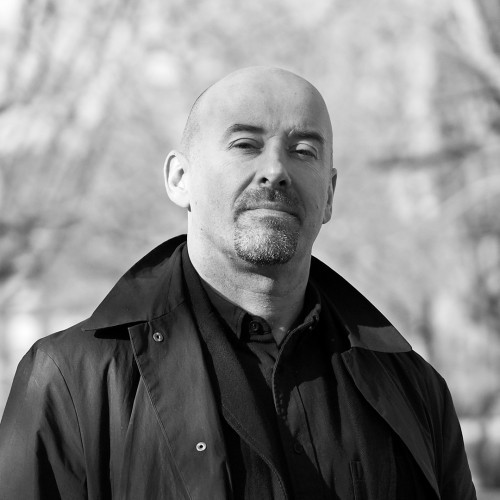
Tim Fendley
Founder, CEO and creative director, Applied Information Group, United Kingdom
Founder and Creative Director of Applied, Tim Fendley is a designer with over 30 years experience creating innovative wayfinding systems for some of the world’s most important cities, campuses and cultural institutions.
Tim has extensive experience in innovation, communication, wayfinding and digital design alongside a passion to simplify people’s lives. Seeking to understand how design can change behaviour for the better, Tim is devoted to helping people discover more, be braver and feel less lost.
Tim’s company Applied creates projects which push the boundaries of information design and make our cities and communities more understandable. For example, Legible London was created to make London the most walking-friendly city. The unified walking system has a higher proven impact than any other and has become the international standard for citywide wayfinding.
Tim is a tireless speaker and campaigner for the development of accessible wayfinding systems for public places. He has spoken on the subject at the London School of Economics, Reading University, Sign Design Society and the International Institute for Information Design in Vienna. Tim is also an advisor to the Helen Hamlyn Centre for Design at the Royal College of Art, and an editorial board member of IIID.

Tim Minshall
Data scientist, Home Monitoring for Wellbeing, Repowering London, UK
Tim Minshall is a software engineer at Repowering London, a not-for-profit community energy development organisation. He led on data analysis and visualisation, as well as smart meter data collection automation for the Home Monitoring for Wellbeing (HMW), a pilot study exploring practical, community-based approaches to facilitating low-income households to improve their indoor air quality and wellbeing at home.
Tim builds digital tools to manage and leverage data for the efficient operation of energy and innovation projects. He has a background in renewable energy engineering and climate science, having worked as a wind resource analyst designing offshore wind farms. He now works as a data scientist and software engineer. With experience in both startups and corporate environments, Tim is passionate about using technology to support social innovation, rather than trusting market-driven technological solutions.

Tom Roberts
Technical principal for urban design, Mott MacDonald, UK
Tom is a Technical Principal for Urban Design at Mott MacDonald Cities Studio. He is an award-winning planner and designer with a wide field of experience across urban strategy, public realm, active travel and economic development. He is an experienced leader of high-profile projects, most recently including the urban integration strategy for Liverpool Baltic Station, and the long-term masterplan for Deansgate, Manchester. He is a guest lecturer at the University of Liverpool, and frequent contributor to trade press. He is a passionate urbanist and active travel advocate.
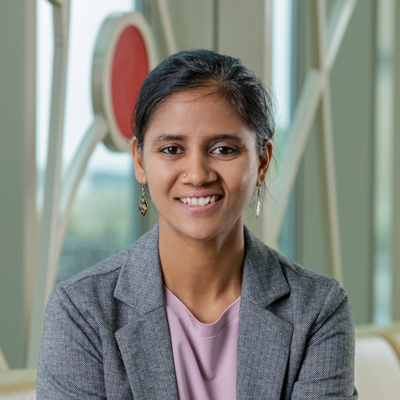
Uchita Vaid
Assistant Professor, University of Wisconsin-Madison, United States
Uchita Vaid is an Assistant Professor in the Department of Design Studies at University of Wisconsin-Madison. She is an environmental psychologist and a design educator. She received her PhD in Human Behavior and Design from Cornell University and also did a post-doc there in the department of Design and Environmental Analysis.
Her scholarship seeks to understand the role of built environments and design in improving the human condition. In her work she investigates complex interactions between design, human behavior, and health, with a goal to create healthy, supportive, and equitable environments for living, working, and playing. Her work shows that human health and well-being are inextricably linked with our physical as well as socio-cultural environmental factors. She is interested in understanding these connections to enable the use of evidenced-based design principles within our built environments, especially in environments of crisis. Her work underscores how design can be used as a transformational force to address health and social vulnerabilities, particularly in global low-to-middle income contexts.

Vanessa Champion
Director, Journal of Biophilic Design, United Kingdom
Originally an academic at UCL, Vanessa later edited a London newspaper and founded a media company and consultancy with clients like the BBC and NHS. Inspired by witnessing the biophilic healing effect of nature views in hospitals, she founded The Journal of Biophilic Design to explore biophilia's impact on wellbeing. A professional photographer and filmmaker, she creates “Virtual Nature Walls” for various settings and founded the philanthropic PhotoAid Global Foundation and co-founded The Space Doctors to promote science-based environmental improvements.

Warawoot Chuangchai
Instructor, Chulalongkorn University, Thailand
Dr. Warawoot Chuangchai is currently a visiting fellow at the Centre for Research in the Arts, Social Sciences and Humanities, University of Cambridge. He holds a PhD in medical engineering and is a former visiting PhD student at the Oxford Institute of Population Ageing, University of Oxford. He received postdoctoral fellowships for research projects involving heart-brain connections, ergonomics, urban green spaces, and inclusive design. As an interior architect, he worked in a senior position in design firms where he specialised in hospitality and hotel design for more than seven years.
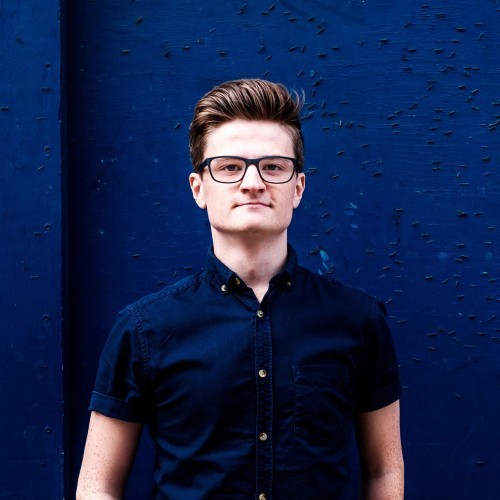
Will Clarke
Architectural designer/architect, P+HS, United Kingdom
Will recently completed a master's study into suburban high-street revitalisation and its policy implications. He now works in a Newcastle based practice across healthcare, residential and older living accommodation sectors.

Yijing Li
Senior lecturer, King's College London, United Kingdom
Yijing Li is Senior Lecturer in Urban Informatics and Deputy Director for Centre for Urban Studies and Progress (CUSP) London at King's College London. She is excel at applying geospatial data mining, fusion, analysis and visualisation techniques onto varied urban topics, such as safety and crime, health and transport, environment and sustainability. The team's working closely with partners from public sectors and charities in London and nationwide, to produce data-driven evidence in the aim to support policy making.

Yonette F. Thomas
Founder and president, UrbanHealth360, USA
Dr. Yonette Felicity Thomas is the founder and president of UrbanHealth360, an organization of multidisciplinary thinkers centered on a people-oriented, community-focused approach to urban health. Dr. Thomas is a globally acknowledged thought leader, urban health champion, and an advocate for valuing the health of women and girls as an economic imperative. A social epidemiologist/medical sociologist by training, she has served as the chief of Epidemiology at the National Institute on Drug Abuse in the National Institutes of Health, held academic positions at University of Miami Miller School of Medicine and Howard University, and as a vice president for research. She founded Borjoner International and Strategic Transitions to influence the progress, health, and wellbeing of individuals and communities across the world. As a founding board member of Women’s Economic Imperative (WEI), she leads the organization’s focus on the health of women and girls as an economic value. Her work as global advisor for Evidence for Sustainable Human Development Systems in Africa (EVIHDAF) and the Centre for Urban Health and Development within the Asian Institute of Poverty Alleviation (CUHD-AIPA) extends her focus on the global south and the realization of the Sustainable Development Goals in this last decade. She is the Associate Editor for Women and Girls for Cities & Health.
She is a founding board member of the International Society for Urban Health (ISUH) and recently led the organization into sustainability by serving as the inaugural executive director (as a board member) and has served as a science advisor for urban health to the New York Academy of Medicine. She is a founding board member and former vice president of the Interdisciplinary Association for Population Health Science (IAPHS) and served on the Steering Committee of the National Hispanic Science Network on Drug Abuse for more than a decade.
She served on the National Academy of Sciences Committee on Revisions to the Common Rule for the Protection of Human Subjects in Research in the Behavioral and Social Sciences. Her primary research and publications have focused on the social determinants of health, health disparities, the health of women and girls as an economic value, the social epidemiology of drug abuse and HIV/AIDS and the link with geography, including edited volumes: Geography and Drug Addiction, Crime, HIV, and Health: intersections of Criminal Justice and Public Health Concerns.
Video + Poster Presenters

Adriana Ortegon-Sanchez
Research fellow, University College London, United Kingdom
Adriana is a researcher at the Centre for Transport Studies at UCL with over 10 years of experience investigating sustainable mobility and wellbeing and health in cities. Upon joining UCL, she participated in a large-scale interdisciplinary program defining visions for future liveable cities. Adriana has professional expertise in the planning and assessment of policies for active mobility, low-carbon transport and healthy places in Latin America and the Caribbean. She has collaborated closely with planning authorities and communities in the UK and internationally to build capacity and empower citizens with tools for transformative action. Her current research employs quantitative and qualitative methods to understand how the built environment of streets and neighbourhoods impacts children's health, subjective wellbeing, and travel behaviour. Her research also focuses on assessing policies such as the health impact assessment of new developments and understanding the broader benefits of healthy places interventions, such as fostering inclusive, sustainable cities and communities and achieving decarbonization goals.

Aidan Watmuff
Research data analyst, Bradford Teaching Hospitals NHS Foundation Trust, United Kingdom
Aidan Watmuff is a data analyst for the Born in Bradford (BiB) longitudinal cohort study. After completing a BA in Human Geography and an MSc in Geographic Data Science at the University of Liverpool, he took the opportunity to contribute towards health research in his home city of Bradford and joined the BiB team in 2021. At BiB he has drawn from the theoretical and practical experience his degrees provided and has been involved in a range of both research and technical projects. His primary focus has been improving and expanding the geographic data available at the study. This has led to the development of comprehensive environmental exposure data and facilitated novel research into the relationships between micro environments and health in the city. He has a keen interest in health inequalities and enjoys combining applied research and data science to ensure complex data can be used effectively by all to facilitate health research at BiB.

Alessio Russo
Senior lecturer in landscape design, Queensland University of Technology, Australia
Dr Russo is a Senior Lecturer in Landscape Architecture at the Queensland University of Technology (QUT), whose research centres on the critical intersection of urban green infrastructure, ecosystem services, human health, climate change, and urban agriculture. Prior to joining QUT, Dr Russo held senior academic positions at the University of Gloucestershire, UK (Senior Lecturer, 2019-2024), RUDN University in Moscow, Russia (Associate Professor, 2018-2019), and FEFU, Vladivostok (Professor and Head of Laboratory of Urban and Landscape Design, 2016-2018). He has led research projects and research units, focusing on mitigating urban heat islands, fostering climate adaptation for sustainable cities, and exploring the potential of urban agriculture. He currently serves on editorial boards in well-known peer-reviewed journals such as Urban Planning (Cogitation Press), Discovering Cities (Springer Nature), and AIMS Urban Resistance and Sustainability (AIMS Press). He further contributes to the field as associate editor for Urban Agriculture and Regional Food Systems (Wiley).

Amit Oberoi
Executive chairman, Considerate Constructors Scheme, UK
Amit is a Global Risk Management Practitioner, with over 20 years hands-on cross industry experience in leadership roles in construction, technology, management consulting and national authorities. Amit currently works as Chief Executive at The Resilience Factor, a Mental Health Technology Company. He has previously worked for construction organisations including Lendlease and on large high profile infrastructure projects in locations in the UK, Middle East and Australia.

Anna Epping
Researcher, Healthy Cities; Architect, Hanze University, The Netherlands
Anna Viola Epping is a researcher Healthy Cities at the Hanze University of Applied Sciences Groningen in the Netherlands and member of Research Centre NoorderRuimte. She is an architect and is passionate about how public spaces can encourage certain behaviours. The interaction between people and the environment interests her immensely. She is concerned with design research, creative participation methods, design power and lively cities. The focus of Healthy Cities is on stimulating a healthy lifestyle and improving health by means of intervening in the built environment, with the aim of diminishing health inequalities. This is done in close cooperation with all stakeholders, and especially with the inhabitants.

Anthony Kimpton
Lecturer - Urban and Regional Planning, University of Southern Queensland, Australia

Anthony Kimpton
Lecturer - Urban and Regional Planning, University of Southern Queensland, Australia
Anthony is a Lecturer of Urban and Regional Planning at the University of Southern Queensland, and former senior data scientist within the Australian Bureau of Statistics and transportation web application developer with the Australian Urban Research Infrastructure Network (AURIN). Sustainable and socially-equitable regional and metropolitan development is his mission and his research expertise includes capitalising on big and open data to both: examine the efficacy and outcomes of land use and transport policy standards; and to develop PlanTech that supports effective decision making and prioritisation of our most disadvantaged neighbourhood communities.

Archontia Manolakelli
Architect + Design researcher, AtkinsRealis, United Kingdom
Archontia is a chartered Architect and Design Researcher specialising in workplace design, applied research and digital tool development, with a focus on applications of psychology for real and simulated environments.
Bridging the gap between research and practice through evidence-based design, Archontia has been involved with projects across various sectors, including Workplace, Education, Civic, Heritage and Aviation, both as a designer and as part of a research team. Recent projects include the design and construction of commercial and public sector offices, and the development of a toolkit for engaging Mainstream and SEND school students into the POE process.
Archontia’ s commitment to designing spaces that prioritise human experience led her to explore human-environment relationships through fundamental research during her masters studies in Psychology, and Architecture where she specialised in environmental psychology and computational urban design. Her research focussed on spatial preferences in relation to personality, personal space as a function of contextual and interpersonal influences, neurodiversity requirements for post-pandemic offices, and design strategies that utilise digital tools and virtual simulation to assess effects of green spaces on environmental factors and human comfort.

Bill Halsall
Senior partner, Halsall Lloyd Partnership, Architect and Landscape architect; Honorary visiting industrial fellow, Liverpool John Moores University, BA(Hons) B.Arch(Hons) L,pool, Dip LA(Dist) B’ham CMLI, Halsall Lloyd Partnership, United Kingdom
Bill has provided the creative impetus for the practice’s distinctive, inter-disciplinary, community focused approach, which is responsive to people, respectful of the environment and proactive in achieving transformational change.
He has led many masterplans, most recently at Seacombe, developing a neighbourhood framework for the new ‘Left Bank’ of the Mersey. Part of this commission has been to work with Bax & Co, Barcelona with an innovative ‘Healthy Cities’ modelling tool to appraise design iterations from a health perspective.
Bill continues his work with communities and is currently working with Rotunda, on a community education project in Liverpool, in the first place to remodel their existing building, a Grade II Listed Georgian terrace, and now to develop a radical live-learn residential project. The project is co-housing and inter-generational to provide a supported environment for young families and older people.
Bill’s involvement and commitment continues to find expression through the design of convivial, safe, and stimulating living and working environments which are conducive to communal life and create distinctive neighbourhoods with strong local identity and sense of ownership. Through his work, he continues to develop the principles of socially and environmentally sustainable design, and the spirit of innovation in the design process.

Brian Kelly
Senior research fellow, Bradford Teaching Hospitals NHS Foundation Trust, United Kingdom

Brian Kelly
Senior research fellow, Bradford Teaching Hospitals NHS Foundation Trust, United Kingdom
Dr Brian Kelly is a senior research fellow at the Born in Bradford birth cohort study. He has a background in applied quantitative research, with around twenty-five years of experience working for a number of local authorities and charity organisations prior to obtaining his PhD in Social Statistics from the University of Manchester. After obtaining his doctorate he joined the Born in Bradford team in 2014, initially with a focus on utilising routine primary care data. Over the years he has been involved in a range of projects at Born in Bradford, with a focus on health inequalities. He has a keen interest in public health and social justice, and also in applied research that aims to improve the wellbeing of individuals and communities.

David Clusiau
Vice-president, design , NORR Architects & Engineers Limited, Canada
As Vice President of Design at NORR, David brings over 35 years of experience working across multiple sectors, providing strategic direction and design leadership. He champions the design conversation within the firm, leading the internal NORR Design Forum and actively mentors the firm’s next generation of designers. David was the NORR design leader for the Ontario Court of Justice, Toronto as well other government institutions including the Wellington and the Sir John A. MacDonald Buildings, Waterloo Region Courthouse, Elgin County Courthouse, Renfrew County Courthouse, the redevelopment of Toronto’s Union Station and the update of the Long-Term Vision Plan for Canada’s Parliamentary Campus. He is the founding chair of the Canadian Academy of Architecture for Justice, Fellow of the Royal Architectural Institute of Canada, member of the Metrolinx Design Review Panel and Chair of the City of Hamilton Design Review Panel.

Dr Shira de Bourbon Parme
Urban wellbeing and innovation lead, Ramboll , United Kingdom
Shira is an urban development planner and social anthropologist focusing on delivering place-based spatial and social sustainability. As part of Ramboll’s Regenerative Cities Team, she leads on urban wellbeing strategies for liveable and resilient urban environments that sustain both human and planetary health. She develops and supports the implementation of strategies based on integrated and vulnerability-sensitive development, design for behaviour change, and local social value approaches. Shira holds a doctorate from the Future of Cities programme at the University of Oxford. She sits on the Advisory Board for the University of Birmingham’s Centre for Urban Wellbeing and delivers an annual talk for the University College London’s MSc Health in Urban Development and the University of Cambridge’s Future of Roads Programme.

Faye Baldwin
PhD student, University of Liverpool , United Kingdom
Faye is a MRC TMRP PhD student combining areas of clinical trials methodology, pharmacogenetics and statistics. Her project is studying how big data can be utilised to emulate biomarker-guided trials.

Hannah Smart
Founder director, edge Urban Design, United Kingdom
Recognised as a Woman of Influence in Planning 2024, Hannah is a leader in her field and promotes high-quality development and regeneration through her comprehensive and inspiring design process.
As an “ideas person” and with the desire to think outside of the box, Hannah uses her creative skills to think strategically and bring added value and energy to her work. She believes in creating narrative at every stage and engaging a design process that is interdisciplinary, follows a landscape-led approach and achieves imaginative placemaking.
Hannah recently featured in the BBC 2 documentary “The Newbuilds are Coming”, which followed a housing development through the Planning System; observing the extensive design process and detailed consideration that takes place behind the scenes of the development industry.
During her career, Hannah has been involved in, and led, the design of many projects including Masterplans and Visions for NW Bicester Eco Town, Oak Old Common, Earls Court, Royal Albert Docks, Mount Pleasant and Wood Wharf. She has successfully designed and delivered mixed-use masterplans of between 1 and 20,000 units in the South East, predominantly Oxfordshire.
Hannah is passionate about site finding, urban regeneration and creating vibrant high streets for our towns and cities.
The submission is from a team of creatives - including Niamh Brady, edge Urban Design, You See Media, Richard Laming, Jeff Nottage both from Turley, Liane Hartley from Considerate Urbanism & Mend and Natasha Reid of Matter.Space.Soul

Harry Dodd
Associate director, Archus, United Kingdom
Harry is an RTPI-accredited built environment professional, with experience in town planning, development project management, and politically high-pressured national programme implementation across both the public and private sectors. He is an Associate Director at Archus with a deep interest and knowledge in Primary Care, specialising in the interface between healthcare planning and development.

Iman Abdul Nasir
Architectural assistant, AtkinsRealis, UK
Iman is an Architectural Designer and Design Researcher based in the AtkinsRéalis Cardiff Studio. Her interest in applied research and understanding end-user needs led her to complete a year-long secondment as part of the Building Design Research and Innovation team.
Working as a Design Researcher, Iman was involved with projects across several sectors including education and workplace. Her research focused on analysing and interpreting Mainstream and SEND student requirements as part of briefing and POE processes and developing evidence-based guidance to support design decision-making. Iman’s work as an Architectural Designer primarily focuses on education facilities. Her most recent project involves an ALN school, which introduces a layer of complexity around delivering inclusive and engaging design that accommodates the diverse needs of students.
Iman believes that understanding end-user requirements, and using evidence-based design as part of decision-making processes can create a substantial impact in delivering positive value to clients and end-users.

James Shearman
Portfolio manager , Impact on Urban Health, United Kingdom
James is a Portfolio Manager at Impact on Urban Health, an independent urban health foundation committed to building health equity and making cities healthier places for everyone to live. An On Purpose Associate, he previously spent 10 years in the private sector building a sports agency and has spent time living in the Caribbean, London and Melbourne. He led on the development and implementation of Impact on Urban Health’s climate strategy and has mobilised funding and resource at the intersection of health, racial equity, and climate justice. He currently sits in the innovation team where his work focuses on the future of urban health, with a specific focus on community-led asset ownership as a mechanism for building wealth in underserved communities.

Jeannette Nijkamp
Professor Healthy Cities, Hanze University, The Netherlands
Jeannette Nijkamp is full professor Healthy Cities at the Hanze University of Applied Sciences Groningen in the Netherlands and member of Research Centre for Built Environment NoorderRuimte. She is an urban sociologist. Her research group focusses on stimulating a healthy lifestyle and improving health by means of intervening in the built environment, with the aim of diminishing health inequities and contributing to resilient communities. This is done in close cooperation with all stakeholders, and especially with the inhabitants. Her research interests include the co-creation of attractive and inclusive public spaces, innovative housing concepts, citizens’ initiatives and public-private collaboration.

Joanna Hayes
Research assistant, University of Liverpool, United Kingdom
I have a professional background in practice and administration in architecture, planning, housing, and regeneration. My experience spans public, private and community sectors and follows a degree in architecture and a master’s in urban regeneration. At the Heseltine Institute I am involved in research and consultancy including an evaluation of Liverpool City Region Combined Authority's Households into Work programme and the Health Foundation project Economies for Healthier Lives. In previous roles, I have been responsible for the management and monitoring of place-based funding programmes in Liverpool City Region and elsewhere, including New Deal for Communities, Single Regeneration Budget, European Regional Development Fund and Area Based Grant.

John Ashton
Past president, RSPH; Founding member of WHO Healthy Cities Project, N/A, United Kingdom

John Ashton
Past president, RSPH; Founding member of WHO Healthy Cities Project, N/A, United Kingdom
John made his international reputation with innovative work in relation to teenage pregnancy and the response to the threat of HIV/AIDS when mass youth unemployment led to heroin addiction.
His public defence of Liverpool supporters following the Hillsborough stadium disaster in 1989 brought him to prominence.
As a result of his work, John was invited by the WHO to become the first co-ordinator of its proposed European Healthy Cities Project which has since become a global movement.
The WHO Healthy Cities Project was established in 1986, initially with 11 cities, including Liverpool. The Project, which was based on the success of the Victorian ‘Health of Towns Movement’, was intended to ‘take the WHO Strategy of Health For All off the shelves and onto the streets of Europe.
John’s book ‘The New Public Health’, published 1989, with Howard Seymour, became a standard text for public health students and John was awarded the C.B.E. in 2000 for his contribution to the NHS
Elected President of the Faculty of Public Health of the UK Royal Colleges of Physicians in 2013, most recently John was a member of the Bahrain Covid-19 Task Force and awarded the Crown Prince of Bahrain medal for medical excellence.

John White
Programme manager, Economies for Healthier Lives, Liverpool City Region Combined Authority , United Kingdom
John has worked in both the public and voluntary sector and his most recent roles have been leading employment programmes for Liverpool City Region Combined Authority. He currently leads on the Liverpool City Region’s Economies for Healthier Lives programme (one of five partnerships in the UK funded by the Health Foundation) to improve access to employment opportunities for unemployed residents who have a health condition and who are seeking employment and to help residents with a health condition to remain in employment. Prior to this John managed the devolved Households into Work programme in Liverpool City Region, which was the proudest time of his working life, as he “finally got to put his ideas for helping people into work into practice and on a much larger scale than he had ever expected”.

Jon Humphreys
Creative partner and co-owner, Sheila Bird Studio, UK
Jon began his career as a graduate architect collaborating with Dr. Rob MacDonald to co-author the book Morphocity. He continued his journey as a designer in brand communications, animation, film and the emerging digital media industry.
In 2006, he co-founded and ran the award-winning design agency The Neighbourhood, with a particular specialism in place branding and activation. As Creative Director he worked with an array of pioneering clients across the property and hospitality sectors such as Allied London, Urban Splash, The Corinthia Hotel and the Michelin starred chef Heston Blumenthal.
Jon joined interior design company Sheila Bird Studio in 2019 as co-owner and creative partner producing innovative award-winning schemes across workplace, residential and hospitality sectors. Together with business partner Atul Bansal, he helped develop a semi-abandoned concert hall in Manchester into a thriving education, hospitality and entertainment venue called New Century.

Kimon Krenz
Senior research associate, University College London, United Kingdom
Dr Kimon Krenz is a Senior Research Associate at the Bartlett School of Architecture and a member of the Space Syntax Laboratory at University College London (UCL), United Kingdom. He earned his PhD in Urban Space and Computation from UCL. His research utilises computational methods to quantify and analyse the built environment, focusing on how space influences human behaviour. He is particularly interested in using spatial data science to uncover social, economic, health, and spatial inequalities, applying this knowledge to inform evidence-based urban planning and policy-making. In addition to his academic work, Dr Krenz has experience as an architect, urban planner, and consultant for medium to large-scale urban development projects in Germany, which have received several architecture awards. @KimonKrenz

Laura Vaughan
Professor of Urban Form and Society, University College London, United Kingdom
UPDATED 29/5/24: Laura Vaughan is Director of the Space Syntax Lab, Bartlett School of Architecture, UCL. She has extensive experience of research into the relationship between urban form and society using space syntax methods to consider some of the most critical aspects of cities and society, ranging from spatial inequalities and health, poverty and housing, to economic and social vitality. Her research has established theoretically that spatial form needs to be understood as a contributing factor in the creation of patterns of integration and segregation in cities. It has also established methodologically that there is a need to develop descriptively rich methods for analysing historic socio-economic changes to cities - including both spatial as well as political processes. In addition to extensive research and teaching activities, Professor Vaughan is regularly invited to disseminate knowledge to policy-makers. She is a member of the West Yorkshire Scientific Advisory Group and Chair of the International Space Syntax Executive Committee. Professor Vaughan was elected Fellow of the Royal Geographical Society in 2005 and subsequently elected Fellow of the Royal Historical Society in 2015. Most recently she gave evidence to the House of Lords Built Environment Committee on the future of high streets.
OLD: Laura Vaughan is Professor of Urban Form and Society and the Director of the Space Syntax Laboratory at the Bartlett School of Architecture, UCL. She completed a Bachelor of Design at the Bezalel Academy of Arts and Design, Jerusalem in 1989. From 1988 onwards she worked at Shlomo Aronson Landscape Architects and then for Yoram Fogel Architects, both in Jerusalem, Israel. She also worked as an illustrator for the David Kroyanker series of books on the architecture of Jerusalem. Laura returned to London in 1992 to take an MSc in Advanced Architectural Studies at the Bartlett, UCL. She subsequently studied for an EPSRC funded PhD in Architecture (completed 1999) while working as a Research Associate and Company Secretary at Space Syntax Ltd. Laura joined the Space Syntax Lab in 2001 as a lecturer and MSc programme director. She was promoted to Senior Lecturer in 2007 and to Professor in 2011. She was elected a Fellow of the Royal Geographical Society in 2005. She was also elected a Fellow of the Royal Historical Society in 2015. In addition to her extensive research and teaching activities, Laura is regularly invited to disseminate knowledge to industry, policy-makers and the general public.

Lauren James
Head of Engagement and Behaviour Change, MP Smarter Travel, United Kingdom
As Head of Engagement & Behaviour Change at MP Smarter Travel, I specialise in conducting targeted engagement to influence travel behaviour change and promote active travel promotion to workplaces, schools and residents.
I have a passion for ensuring equality, diversity and inclusion within infrastructure design and active. One of the projects that I’ve worked on is our Places of Worship, Smart Trips project which provides meaningful active travel engagement with under-represented groups to reduce barriers to sustainable travel. The Lambeth Accessibility builds on this, using lived experience from disabled members of the community to shape accessible public realm design.

Liane Hartley
Director, Mend; Founder, Considerate Urbanism, Mend and Considerate Urbanism, United Kingdom
Liane is a “Considerate Urbanist” and is an urban planner by background and social entrepreneur in practice. She has been a consultant and writer on the broad area of urban sustainability for over twenty years. Her focus is on the social future of cities and how we live in and experience urban space. She writes about the emergence of the social city and “Considerate Urbanism” - moving us from car-based to care-based urbanism. Considerate urbanism is a movement, mindset and method for more considerate urban experiences futures, and behaviours to emerge for people planet.
Liane specialises in building positive social outcomes from the built environment through the businesses and organisations she has created (Mend and Considerate Urbanism) and the women’s leadership organisation she has founded (Urbanistas). She combines her personal interest in the social dynamics of cities and the future of cities, with her professional skills in strategy, policy, collaboration, and project delivery. Liane has a strong academic and professional background in the social impact of the built environment, and is regularly asked to speak, chair, write and participate, and to mentor others.

Lisa Dowling
Senior research fellow, Bradford Institute of Health Research, United Kingdom
Lisa is a Senior Research Fellow / Embedded Researcher working at the Bradford Institute of Health Research (BIHR) and the City of Bradford Metropolitan District Council (CBMDC). Her work aims to support the use of research and evaluation in local government decision-making. Lisa particularly focuses on supporting ‘real-time’ research and evaluation of place-based interventions to understand the impact on health and wellbeing.
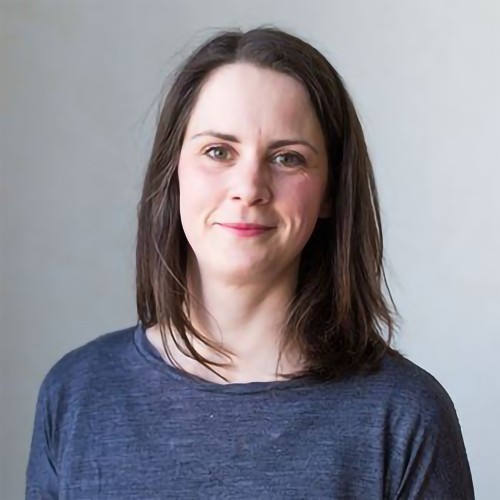
Lisa Jones
Reader in Public Health, Liverpool John Moores University, United Kingdom
Lisa has almost two decades of research experience, achieved primarily through externally funded projects utilising systematic review and other methods of evidence synthesis. She is a research leader and has been involved in the production and delivery of more than 30 evidence syntheses on health and public health related topics. Lisa has led the production of evidence synthesis projects to support the development of guidance and guidelines by national and international bodies; including the National Institute for Health and Care Excellence (NICE), the UK Chief Medical Officers and the World Health Organization. In recent years, she has been a work-package lead on two NIHR-funded evidence synthesis projects (RECO study NIHR128128 and AMOUNT study NIHR202988). Since January 2024, she has had a major role as a co-applicant in the successful bid by Liverpool City Council for a Health Determinants Research Collaboration (HDRC) (NIHR159187). Within the HDRC Liverpool, she is contributing academic input to units providing research capacity and culture building within local government and decision support for evidence informed decision making.
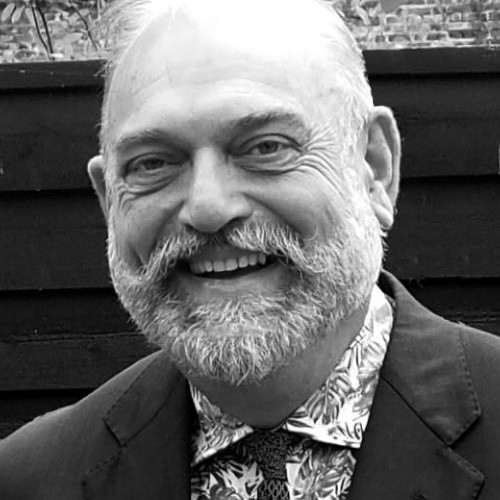
Luke Engleback
Founder / director, Studio Engleabck Ltd, United Kingdom
Luke Engleback CMLI FRSA
Chartered Landscape Architect, Ecourbanist
Luke has four decades experience as a designer at all scales, establishing Studio Engleback in 1998. He has taught since 1984 and regularly presents papers or posters on Ecourbanism & biodiversity, climate change adaptation & health, and has taught this to architects / landscape architects in the UK and abroad.
A board member and former chair of the Landscape Foundation, Luke also sits on the Landscape Institute Policy and Communications Committee (since 2015) and has been involved in workshops and teaching soils, regenerative design, design for climate change, biophilic design, urban agriculture etc. Formerly a CABE Space Enabler, Luke has been a peer reviewer on a number of panels including Design South East (2010-2023), Midlands Design Panel, the Cambridge Quality Panel and the South Downs National Park (formerly Vice Chair) and theFolkestone & Hythe Place panel. He is also a peer reviewer on the Cities & Health Journal, and on various Awards juries.
The work in Studio Engleback is varied and at all scales from Sub-regional planning frameworks/urban frameworks, Landscape character & sensitivity assessments and LVIA, masterplanning, housing, exception houses, and detailed hard and soft design.
Ecourbanism is a regenerative systems approach to urban/periurban design. Studio Engleback is a founder signatory of UK Landscape Architects Declare a Climate & Biodiversity Emergency.

Mark Collins
Chartered Landscape Architect, HLM Architects, United Kingdom
Mark studied landscape architecture at the University of Sheffield and also has an undergraduate degree in Illustration. He has worked on community regeneration schemes and across a broad spectrum of sectors, which include masterplanning, urban design, green infrastructure, public realm, open spaces, parks, and large-scale commercial
projects. Mark’s passion lies in the creation of sustainable landscapes.

Mark Drane
Director, Urban Habitats, United Kingdom
Mark is a researcher and practitioner with 20 years’ experience. He works across the fields of public health, urbanism, and architecture. His work addresses wider determinants of health, focused on promoting holistic wellbeing, and reducing health inequalities.
Mark has recently completed his doctoral research, Healthy Streetlife, undertaken during the Covid-19 pandemic observing the impact of the street environment on health. This research has been based at the WHO Collaborating Centre for Healthy Urban Environments, UWE Bristol.
As the founder and director of Urban Habitats Mark’s practice work encompasses population health across a spectrum of topics and methods. This includes working at a whole country scale with the WHO Collaborating Centre on Investment for Health and Wellbeing at Public Health Wales. He works at all urban scales including community co-design and addressing community agency as a determinant of health.
With a background in practice and industry Mark has been involved in the delivery of over £2 billion of capital investment in social infrastructure. Mark has experience with a broad range of stakeholders across the urban health ecosystem from many different systems and sectors.
Happiest whilst on a bicycle Mark is an optimistic gardener and lives in Cardiff, Wales with his family.

Matthew Morgan
Co-founder, director, Quality of Life Foundation, United Kingdom
Matthew Morgan is the Director and co-Founder of the Quality of Life Foundation. He is responsible for setting strategy with the Board of Trustees, overseeing the Foundation’s commercial services and delivering lasting impact with the Quality of Life team, itself focused on highlighting the impact of the built environment on people’s lived experience.
With over 20 years’ experience in writing and communications, Matthew has previously worked with architects, engineers and developers; in book and magazine publishing; and with charities and start-ups. He is a participant on a number of advisory boards and chairs a multi-stakeholder group that advises on community engagement as part of the UKRI-funded CCQOL (Community Consultation for Quality of Life) project.
A published author and mental health advocate, Matthew is particularly interested in how communities are formed and their effects on people’s physical, social and psychological wellbeing, an interest he developed while growing up in an intentional community in Kent.

Maya Ljubojevic
PhD researcher, University of Strathclyde, United Kingdom
Maya Ljubojevic is a Public Health and Health Policy PhD student. The research revolves around Thriving Cities- public mental health initiatives. Maya’s background consists of geography, economics, and public health. This multidisciplinary foundation allows for an innovative, adaptable, and critical research approach. Her primary interests lie in socio-spatial connectivity, and social and environmental determinants of health. Identity, space, and place are further interests of Maya’s. Maya utilises a variety of methods in her research including qualitative such as photovoice and interviews as well as GIS. The combination of these in novel ways is a key aspect of her work.

Melinda Covey-Hansen
PhD student; Research assistant, University of Southern Queensland, Australia
Melinda Covey-Hansen is a seasoned Health Promotion Practitioner, bringing over 15 years of experience to the forefront of her work in shaping healthy and active communities. Specialising in impactful policies, plans, and programs within local government, Melinda has been both a leader of and contributor to numerous healthy and active living, transport and recreation initiatives. Melinda is currently completing a PhD with the University of Southern Queensland, focusing on active living, transport and recreation policy in local government. Melinda is also a research assistant with the University of Southern Queensland, contributing to various system-mapping, citizen science, health-supportive environments and community-led research projects aimed at creating healthy and active communities.

Mikel Subiza-Perez
Research fellow, University of the Basque Country UPV/EHU, Spain
Dr Mikel Subiza-Perez obtained a PhD in Environmental Psychology in the University of the Basque Country UPV/EHU (Spain) in 2019, where he works now as a postdoctoral researcher. He is also an honorary research fellow at the Bradford Institute for Health Research. He conducts research on environmental epidemiology and psychology, mostly aimed at understanding how urban environmental exposures shape behaviour and health. He is particularly intrigued about which factors, and through which processes, foster healthier and more sustainable lives and works with the vision of generating evidence to inspire public policies and interventions.

Natasha Reid
Founder, MATTER . SPACE . SOUL, United Kingdom
Natasha Reid is founder of MATTER SPACE SOUL, a specialist design consultancy and creative lab shaping places for health, wellbeing and social sustainability. Having trained and practiced in architecture, she has focused on the social, psychological and emotional impacts of places over the last decade and often speaks at conferences on forward-thinking approaches to pressing urban issues.
She is a “Healthy Places and Inclusive Design” expert for two London borough review panels, Fellow with the Center for Conscious Design and an Associate with the Quality of Life Foundation. She studied Architecture at Cambridge University and gained a Distinction for her Professional Diploma in Architecture at The Cass. She is an advocate for the power of design to create change that matters, recognised in international publications such as Wallpaper* and Elle Decoration, as a "Groundbreaker" and "Women to Watch".

Nicola Christie
Professor of Transport Safety, University College London, United Kingdom
A behavioural scientist with a background in psychology researching transport safety and injury prevention through a public health lens. Her research encompasses the aetiology, epidemiology and impacts of unintentional injury and implications for policy and practice. Recently this has developed into an interest in how safety impacts sustainable and healthy mobility. Experienced in using exploratory, ethnographic techniques to understand complex social phenomena and human factors associated with the causes and consequences of injury and mixed methods approaches to evaluation including natural experiments, quasi-experimental and qualitative designs.

Nicola Noble
Co-head teacher, Surrey Square Primary School, United Kingdom
Nicola is the co-Headteacher of Surrey Square Primary School where she has worked since 2006. Surrey Square is part of the Big Education Trust which is 'rethinking school' to ensure that schools value more than just the traditional curriculum and academic outcomes. 'At Surrey Square, we are 'more than a school', which means that we work together from the core, equipping the community to thrive and build a better world for themselves and others.
Nicola's own life experiences have made her passionate about the importance of well-being. The well-being of staff, pupils, their families and, in recent years with the creation of the Old Kent Road Family Zone, the wider community is at the heart of the work at the school. The Old Kent Road Family Zone is the school's answer to tackling community well being with a new 'doing with' approach.
In all areas of her work, Nicola believes passionately in developing capacity and has worked extensively as a coach and trainer especially focused on leadership development. She thrives on developing those around her and being authentically engaged with stakeholders of the community she serves.
Nicola juggles Head Teacher life with being a mum to three children and works flexibly in her role.

Otto Lussenburg
Researcher, Healthy Cities, Hanze University, The Netherlands
Otto Lussenburg is a researcher at the Healthy City professorship via the NoorderRuimte Knowledge Center at the Hanze University of Applied Sciences in Groningen. As a researcher, he is active in directing research by students at the InnovatieWerkPlaats (Innovation Workshop) Wijklab Korrewegwijk and coaching and guiding students at various other innovation workshops on the theme of Health and Well-being. Based on his lifelong fascination with photography, he started a limited pilot Photovoice in the Korreweg district in Groningen.
Otto is a generalist, which is due to his broad interests, which make him feel at home with a wide range of subjects. After studying Engineering Geology at TU Delft, he qualified as an environmental consultant in soil research and remediation, environmental management and Corporate Social Responsibility. In addition to the role of researcher, he fulfilled various management roles (department manager, interim manager) at the consultancy firms where he worked. As a self-employed person, he was, among other things, area development program manager for the revitalization of an industrial estate. Since 2013, he has also worked as a lecturer in Corporate Social Responsibility at Hanze University of Applied Sciences.
Additional positions: commissioner at Energy Cooperative Duurzaam Assen, volunteer.

Paula Grant
Senior lecturer and Programme director - Urban and Regional Planning, University of Southern Queensland, Australia
Paula is an urban and regional planner and “pracademic” with 30 years’ senior executive experience in statutory and strategic planning in Queensland. She is currently the program director of the urban and regional planning program at the University of Southern Queensland. She is a Registered Planner and Fellow of the Planning Institute of Australia (PIA) and a member of the editorial board the Australian Planner and the PIA National Education Committee. She has a strong attachment to and interest in the future of vibrant regional communities.

Philip McHale
Senior clinical lecturer in Public Health and Policy, University of Liverpool, United Kingdom
I am a Senior Clinical Lecturer in the Department of Public Health, Policy and Systems at The University of Liverpool. My background is in medicine specialising in Public Health. My research areas of interest include disability, with a particular focus on employment, perinatal outcomes, particularly preterm birth, and the generation of health inequalities, specifically understanding the causal pathways that lead to socioeconomic inequalities in health. I have published peer reviewed research in these areas. I have worked with the World Health Organisation (WHO) Collaborating Centre for Policy Research on Social Determinants of Health on reports about health equity and working conditions, and a range of local partners in health and social care and the wider determinants of health.

Polly Turton
Head of climate action and public health, Shade the UK, United Kingdom
Polly is Head of Climate Action and Public Health at Shade the UK. Shade the UK is a Community Interest Company (CIC) that works collaboratively to adapt the built environment and public spaces to protect vulnerable people against a changing climate.
Polly is an experienced environmental design consultant focused on assessing and communicating how changes in the built and natural environment, including climate change, affect people’s health, wellbeing and resilience. She is passionate about integrating strategies for sustainable, healthy and equitable urban planning, design and development into infrastructure, building and public realm projects.

Rachel Turnbull
Programme lead and co-founder, Health Innovation North East and North Cumbria, United Kingdom
Rachel works in healthcare innovation leading regional projects in the North East of England. Originally qualified as a clinician with a Doctorate in Clinical Psychology Rachel has developed more than 15 years’ experience in project management and service improvement roles and more latterly completed a degree in urban planning and architecture. Her interests lie in the connections between wellbeing and urban design and how to support the creation of healthy, happy, fun places where people and communities can thrive.
Rachel is co-creator of the programme, Healthy Happy Places, which is focusing specifically on how we can create positive mental health and wellbeing through the built environment by sharing expertise and knowledge between the NHS, public health, regeneration and planning, design, architecture, the arts and citizens; and using creative participation to nudge and inspire the design of places and spaces. Exploring ways of putting ‘tactical urbanism’ into action in places with deep inequalities using a set of evidence based 'ingredients' to guide possibilities in place. This is currently being tested and applied in practice to projects in the North East.

Rebecca Geary
Senior lecturer, University of Liverpool, United Kingdom
Rebecca is a lecturer in epidemiology and public health in the Department of Public Health, Policy, and Systems at the University of Liverpool. She is a rigorous and innovative mixed-methods researcher with international experience of conducting research on health inequalities. She has strong training in epidemiology, statistical modelling, natural experiments, mixed methods research, and study design. She has expertise in the analysis of longitudinal and linked administrative and survey data.
Rebecca is a principal investigator on a Wellcome Trust Research Enrichment grant to support the Wellcome Trust funded birth cohort Children Growing up in Liverpool with a multi-year arts-based public engagement programme and is an investigator on the birth cohort itself. Rebecca is also a co-principal investigator on an Economic and Social Research Council grant on whether the two-child limit to welfare policy and cuts to contraceptive services in Britain has impacted abortion rates and household poverty. Her commitment to under- and post-graduate teaching has been recognised with the award of Fellow of the Higher Education Association (2018).
Prior to joining the University of Liverpool, Rebecca was an Associate Professor at the London School of Hygiene and Tropical Medicine and the Royal College of Obstetricians and Gynaecologists where she led the development and evaluation of quality-of-care indicators and was a methodological advisor to the National Maternity and Perinatal Health Audit.

Richard Laming
Senior director, economics, Turley, UK

Robert MacDonald
Architect, ARC NWC , MerseyCare NHS Foundation Trust Charity, United Kingdom
Dr Robert G MacDonald is an architect and Public Advisor ARC NWC with experience of designing Housing Cooperatives and publishing about “Design for Dementia”, Vols 1/2/3.
He also published “DIY CITY” which involved over 20 communities in designing their own environments. Rob is a service user and volunteer with MerseyCare NHS Foundation Trust where he teaches “Art for Mental Well Being.”
Dr Robert MacDonald and Jon Humphreys published ‘Imagine Liverpool’ and ‘Morphocity’ which included many visions and dreams of the future.
‘Morphocity’ is an exploration of the City reimagined including a chapter on the Liverpool Housing Cooperatives.’
Rob was presented with The Roscoe Citizenship Award (2014) by Lord David Alton.
Rob was presented with The Design in Mental Health Network Award (2019) Recognition by Dr Phillip Hammond BBC TV.

Rosie McEachan
Born in Bradford director, Bradford Institute of Health Research, United Kingdom
Rosie McEachan is the Director of Born in Bradford and a proud (Scottish) Bradfordian. She is an experienced applied health researcher with particular interests in cohort studies, development and evaluation of complex interventions, environmental determinants of health, green space, air quality, and co-production. Rosie holds a visiting professor position at University College London and an honorary chair position at the University of Bradford.

Rukun K.S. Khalaf
PhD student, University of Liverpool, United Kingdom
Rukun Khalaf is a PhD student based at the University of Liverpool. Her work focuses on Green and Blue Spaces (GBS) and their relationship with maternal health and health inequalities. Her work is funded through a National Institute for Health Research (NIHR) School for Public Health (SPHR) PhD studentship.

Ruth F. Hunter
Professor, Queen's University Belfast, United Kingdom
Ruth's work primarily involves investigating how we can improve our urban environment for better population health and planetary health. She is particularly interested in research at the intersection of public health and planetary health. Her work involves the application of systems-thinking and complexity science methods, as well as social network analysis, causal inference and computer vision methods.

Ruwanthi Kolamunnage-Dona
Professor of Medical Statistics, University of Liverpool , United Kingdom
Ruwanthi's research combines two key strategies: (i) developing statistical analysis methods for most efficient use of the data available, and (ii) translating this knowledge into clinical applications. Most of her research is motivated by applications in public, clinical and biomedical disciplines to ultimately help improve health outcomes for people.

Samuel Jennings
5th Year Medical student, University of Birmingham, United Kingdom
I am a 5th Year Medical Student at the University of Birmingham. I have an Intercalated Degree in Medical Humanities (BA) and a strong interest in the interdisciplinary overlap between public health, the humanities, and the social sciences.

Sarah E. Hunt
University of Liverpool, UK

Selin Akaraci
Research fellow, University College London, United Kingdom
Selin is a research fellow in the Environmental Epidemiology Population, Policy & Practice Department at University College London.

Sem Lee
OURI Labs, OURI Labs, United Kingdom
Sem Lee is the Founder of OURI Labs, an urban strategist, social entrepreneur and facilitator focused on understanding the effects of the built environment on health and wellbeing and addressing the social challenges surrounding it. Sem holds a MSc in Health, Wellbeing and Sustainable Buildings from UCL, an MBA, and has over 10 years experience project and programme managing projects in diverse sectors across communications, sustainability and service design. Sem has worked with public, private and third sector organisations helping to facilitate difficult discussions and co-creating futures using evaluation and participatory tools, whilst working between policy and practice.

Shreya Shukla
PhD scholar, Indian Institute of Technology, Roorkee, India
Shreya Shukla is a Researcher and an Architect by profession, who is currently pursuing her Ph.D. at the Indian Institute of Technology (IIT), Roorkee, as a part of the “Happiness by Design” Research Group. She has received the esteemed Prime Minister Research Fellowship (PMRF) from the Ministry of Education, Government of India for her doctoral research. Over the past few years, she has worked in the research area of mapping emotions for designing healthy cities, and neighbourhood design for the mental well-being of the elderly.

Sophia Arthurs-Hartnett
Research assistant, Bradford Institute of Health Research, United Kingdom
Sophia began her PhD at the University of Sheffield in October 2021 as part of the White Rose-funded ARC Doctoral Cohort. Her research aims to evaluate the School Streets intervention as a method to improve air quality, active travel and children’s safety and independence. Sophia is also a Research Assistant for the Born in Bradford Research Program, located at the Bradford Institute for Health Research.

Susan Jarvis
Co-director , University of Liverpool, United Kingdom
I have a professional background in local government practice and over twenty years' experience of evidence-informed policy making. A former Director at Liverpool City Region Combined Authority and Knowsley Council, I have senior leadership experience of delivering public services, including complex programmes where activities are undertaken by partners across multiple agencies. In my current role as Co-Director of the University of Liverpool's Heseltine Institute I lead engagement across local and regional stakeholders to align academic research with place-based policy to support sustainable cities and city regions. This includes acting as academic advisor to the Liverpool City Region All Party Parliamentary Group, evaluating the impact of national policies on local prosperity and leading key agendas of civic engagement. My research areas of interest are public policy, employment and skills, local economic development strategies and regional devolution. I am interested in community engagement practice and have secured and delivered research grant from UKRI and the British Academy for place-based collaborations involving local communities, policymakers and practitioners that support economic and social impacts. As a co-applicant in the successful bid by Liverpool City Council for a Health Determinants Research Collaboration (NIHR159187) I am leading knowledge translation activities.

Tiffany Yang
Principal research fellow, Bradford Teaching Hospitals NHS Foundation Trust, United Kingdom
Dr Tiffany Yang is a Principal Research Fellow with the Born in Bradford (BiB) family of projects at the Bradford Institute for Health Research. She gained her PhD from the University of Michigan School of Public Health and is interested in the health impacts of environmental exposures including air pollution, green space, and chemical exposures, the evaluation of public health interventions, and increasing collaborations to enhance the use and impact of cohort data.

Tim James
Head of strategic estates , NHS Bristol, North Somerset and South Gloucestershire ICB, United Kingdom
Experienced to Director level having entrepreneurially led the transformation and rebuilding of a business. Identified numerous market and organisational transformation opportunities and created innovative solutions in pressured situations.
Proven ability to operate in both private and public sectors and a strong belief in creating value for customers. Highly adaptable, with a fundamental understanding of the Healthcare, Aerospace, Aviation Support, Logistics, and Construction sectors, and with a wealth of contacts across each. Able to creatively transfer learning and best practice from one to another.
A talent for Innovation, and Systems Thinking. Intrapreneurially working to transfer Engineering Management approaches including Lean and Soft Systems Methodology into the NHS for service design and transformation. Previous leading role in rebuilding, retraining and moulding attitudes of management and operations teams during business transformation. Developing and nurturing a culture of success in teams.

Tina Pujara
Assistant Professor, Indian Institute of Technology, Roorkee, India
Tina Pujara is a professor of Architecture and Urban Design with a specialization in ‘neighbourhood design and happiness’ at the Indian Institute of Technology (I.I.T) Roorkee in India. Her work focuses specifically on the association of happiness with the built environment. Tina has been a recipient of the Swiss Government Excellence Scholarship and was an academic guest researching on urban design at ETH Zurich in Switzerland prior to joining IIT Roorkee.

Tracy Kolbe-Alexander
Discipline lead - public health, University of Southern Queensland, Australia
Professor Tracy Kolbe-Alexander has substantial experience in community-based participatory research methods and citizen science programs that aim to address health and equity outcomes. Her main research focus explores the role of the social, built and natural environment in supporting wellbeing in communities, including those with low socio-economic status, regional and remote areas, and the Global South. Using various strategies and methodologies, including participatory community-based and systems science approaches, she has developed, implemented and evaluated health promotion programs in different settings. Her research has been translated into policy and practice.

Yuan Shi
Lecturer in Environmental Planning, University of Liverpool, United Kingdom
Dr. Yuan Shi is currently a Lecturer in Environmental Planning. Before joining the University of Liverpool, he was a Research Assistant Professor at the Centre of Urban Sustainability, Institute of Future Cities, The Chinese University of Hong Kong. His research focuses on evidence-based sustainable, climate-adaptive, healthy urban planning and development with a specific focus on the interactions between urban form and atmosphere as well as the impacts on urban sustainability and human health. With his research outputs and impacts, he is on Scopus's list of the Top 500 authors (#139 based on field-weighted citation impact in 2020-2024) by Scholarly Output in the United Kingdom within the Field of Research for Geography, Planning, and Development. He also serves on the editorial board of leading climate journals and is active in several global collaborative research communities & networks about urban climate resilience.
https://www.liverpool.ac.uk/environmental-sciences/staff/yuan-shi/
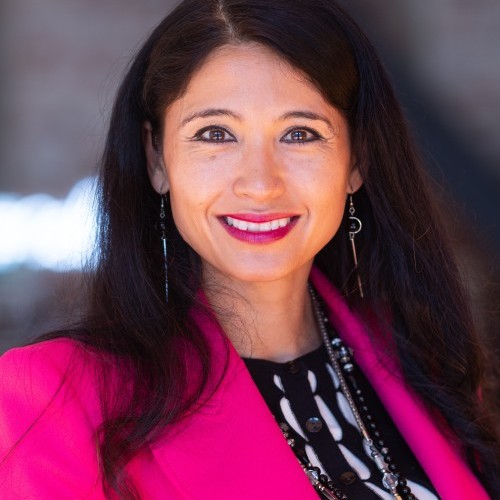
Yvonne Chan Cashmore
Associate dean – engagement, Auckland University of Technology, New Zealand
Dr Yvonne Chan Cashmore, as the Associate Dean and Director of Engagement for the Faculty of Design and Creative Technologies at AUT University, is a trailblazer in fostering authentic collaboration and transdisciplinary innovation driving positive social impact. With an unwavering belief in the power of combining disciplines, cultures, and technology, she envisions a world where collective efforts pave the way for evolution and success, not just at work, but in all aspects of life.
An advocate for transdisciplinary practice, Yvonne advocates the integration of creative practices within the STEM and design fields, pushing and evolving the boundaries of traditional disciplines. Her research focuses on women in leadership and well-being, championing the importance of maintaining traditional cultural practices through contemporary solutions. She supervises postgraduate students exploring cultural practices and using technologies to create evolved well-being solutions.
Yvonne's journey is stimulated by her divine connection with textiles, fashion, colour, culture, and technologies. With a background in Smart and high-performance textiles, her expertise has evolved to embrace transformative technologies and healing methodologies. She pioneers interactive healing textiles, fashion, and smart environments, where innovation and well-being merge seamlessly.
Her vision encompasses a harmonious blend of disciplines, unorthodox materials, and technology, emphasizing the importance of preserving and learning from traditional cultural practices and natural environments. Yvonne embodies the spirit of pushing boundaries, knowing that true evolution lies in embracing diversity and unconventional approaches.

